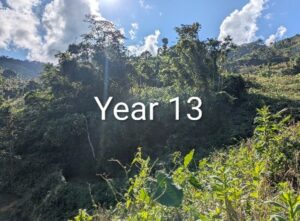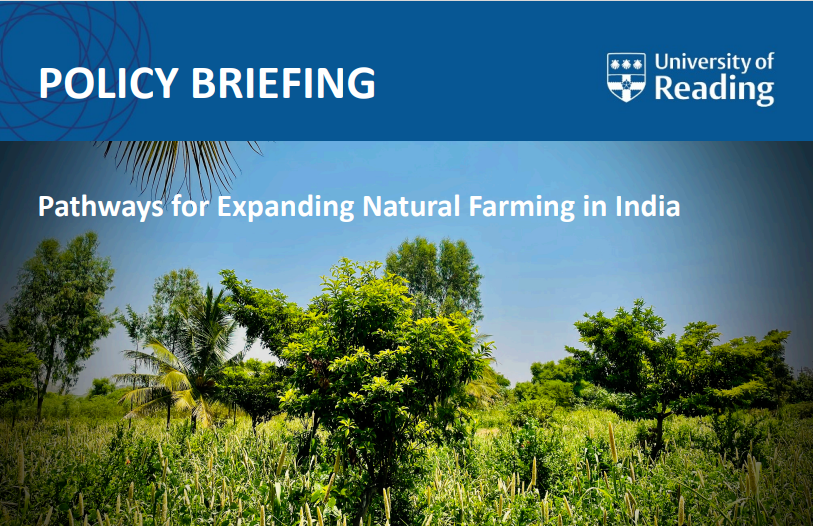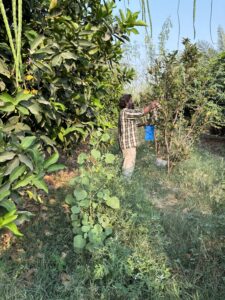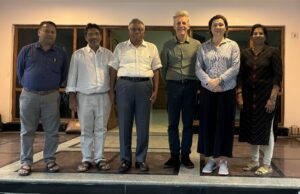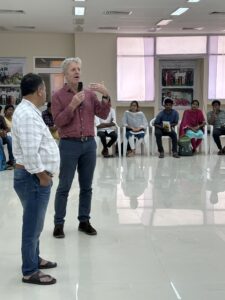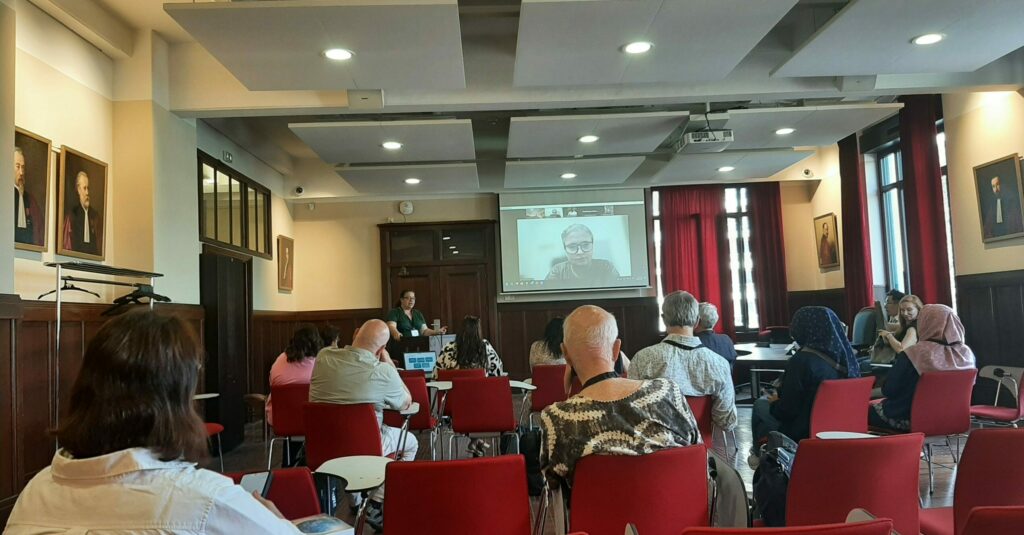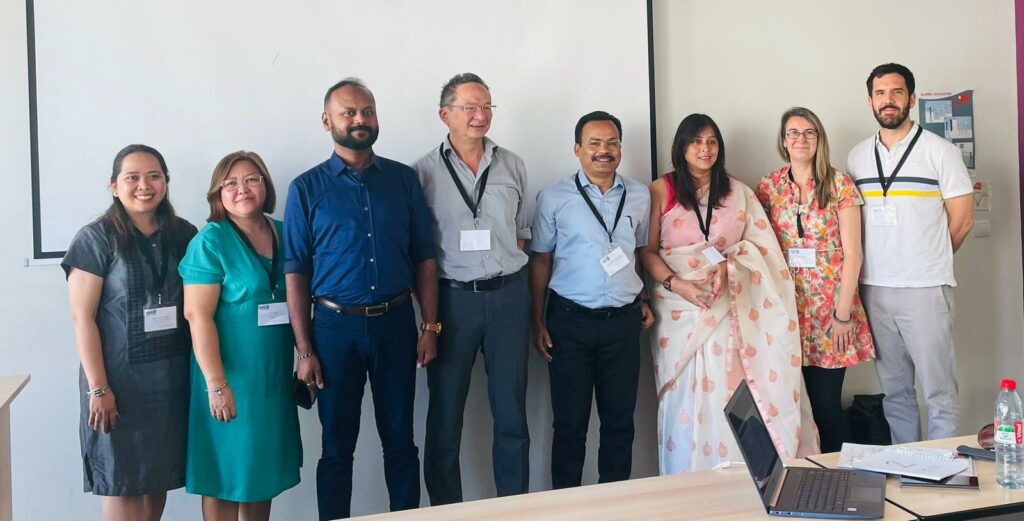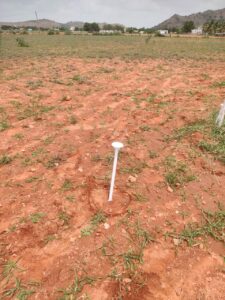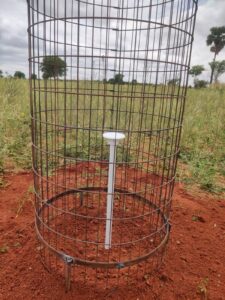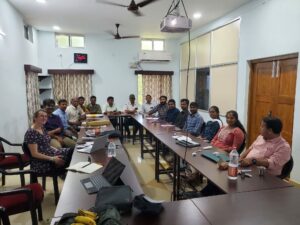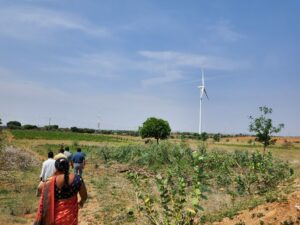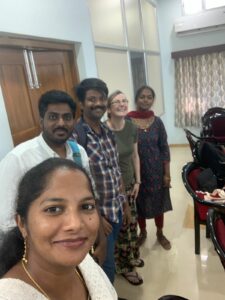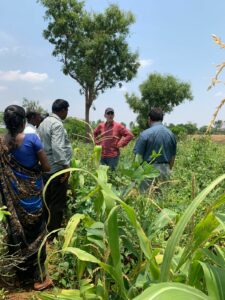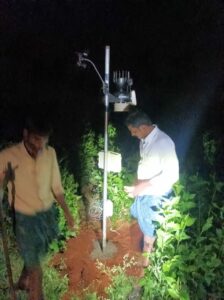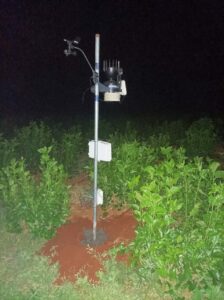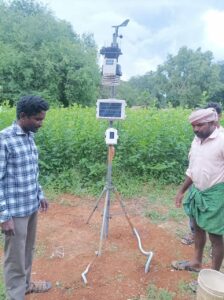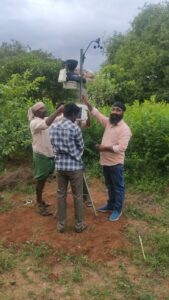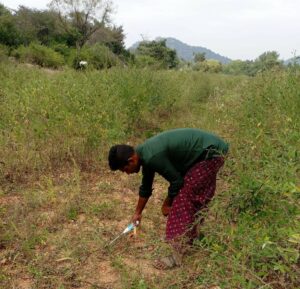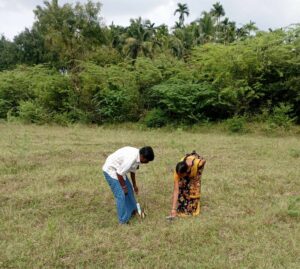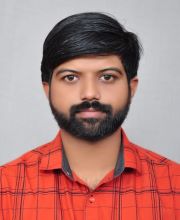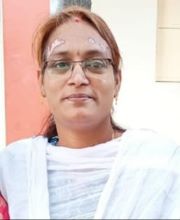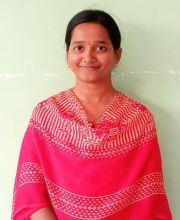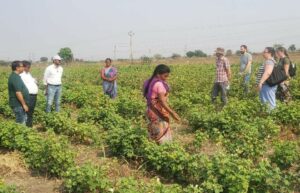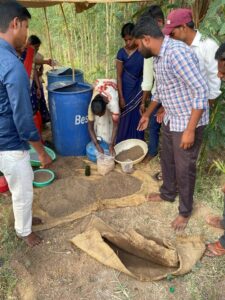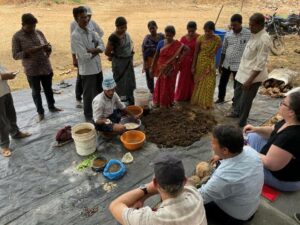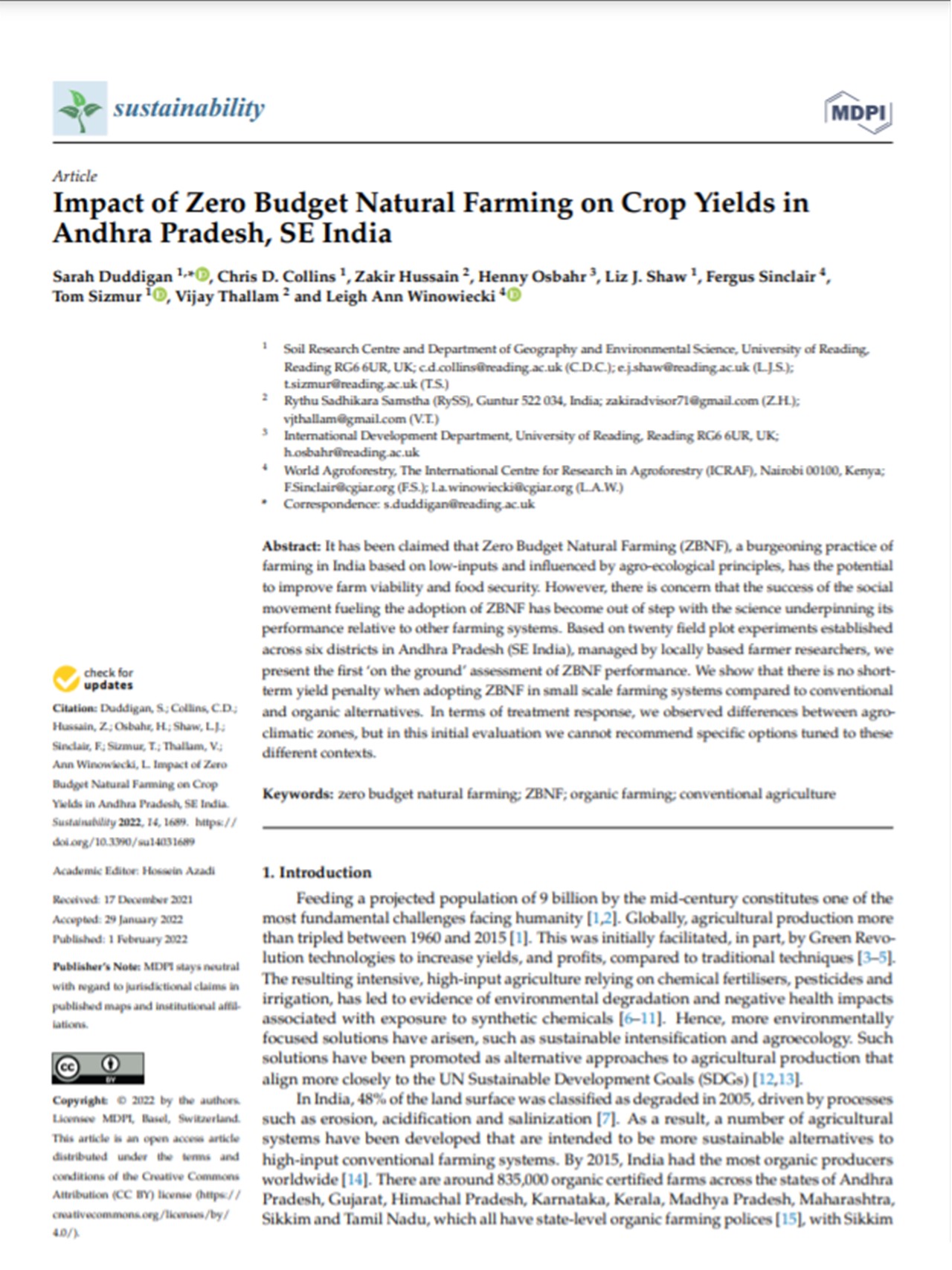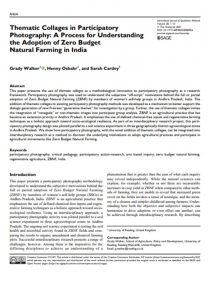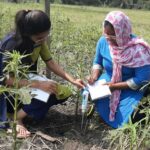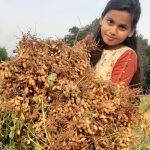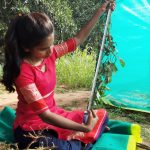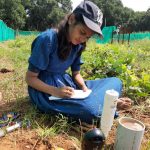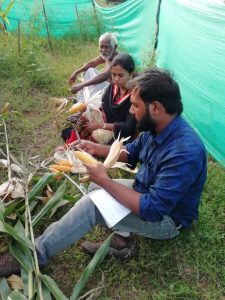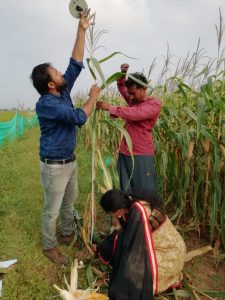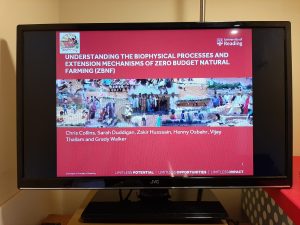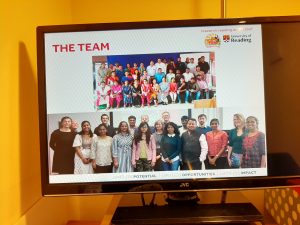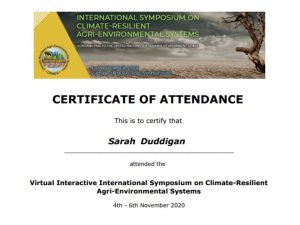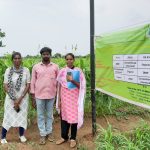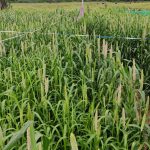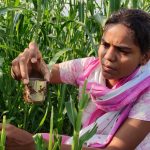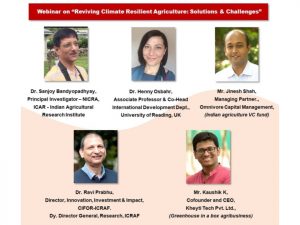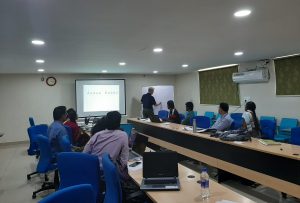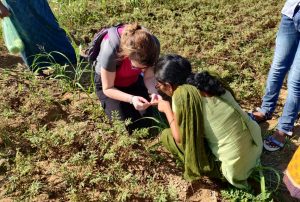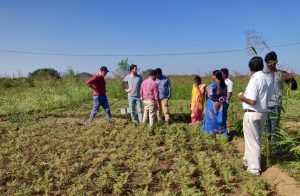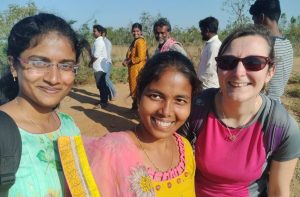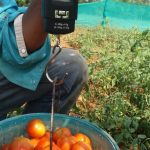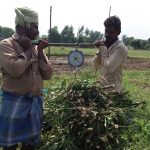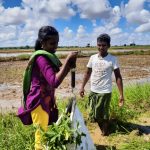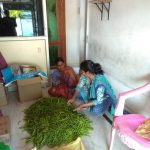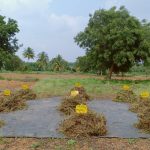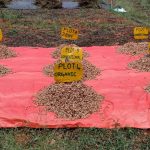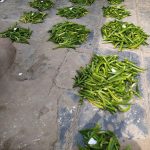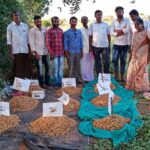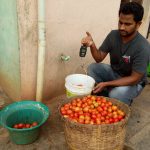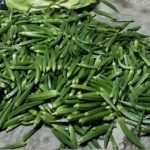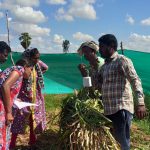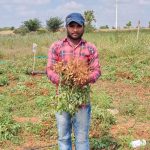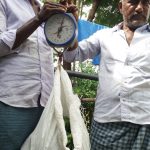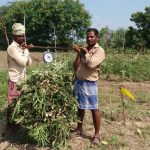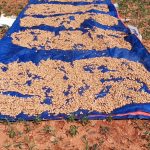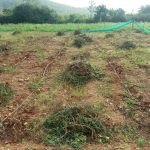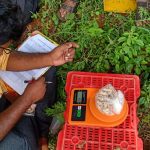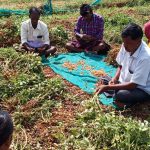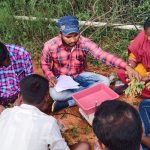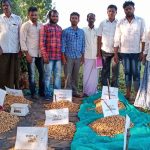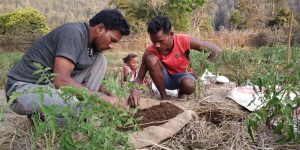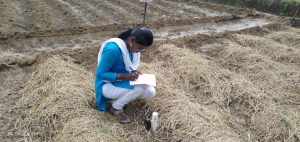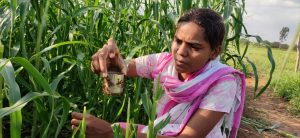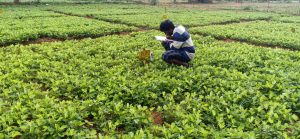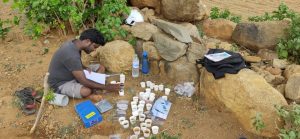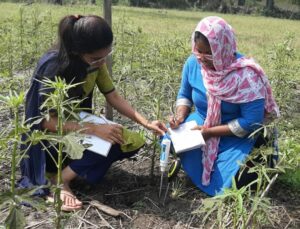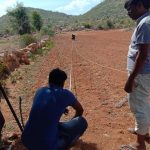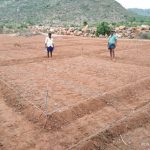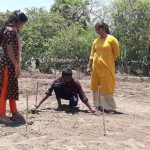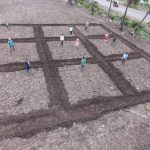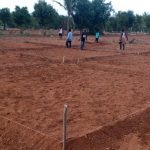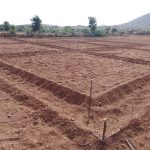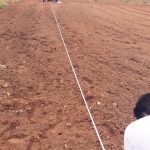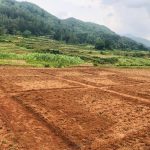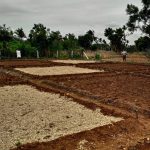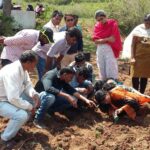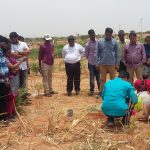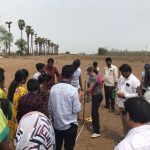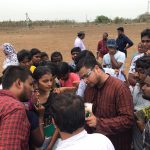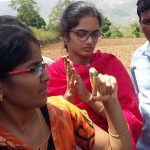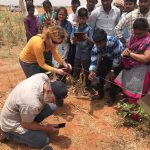December 2025
Natural Farming Taking root in India: Farmers report Early Signs of Healthier Soils
In the South Eastern Coastal Region India, in Andhra Pradesh, a quiet revolution in farming is unfolding, one that could redefine how food is grown while healing the soil beneath our feet. In this blog, Professor Chris Collins shares how natural farming is slowly changing the soil with evidence from the field.
For decades, Indian farmers have relied on inorganic fertilisers to boost crop yields. But while these chemical inputs have helped feed millions, they’ve come at a cost: rising expenses and slowly degrading soil fertility. High input costs for chemical fertilisers and pesticides, along with market volatility, have left many trapped in debt and poverty. Now, a new approach known as Andhra Pradesh Community Managed Natural Farming (APCNF), a low-cost, locally sourced natural farming method that does not rely on agrochemicals, is showing promising results.

Researchers from the University of Reading have been working closely with Rythu Rythu Sadhikara Samstha (RySS), a non-profit organisation established by the state government of Andhra Pradesh in India, to study the agronomic impacts of natural farming compared to conventional management. As part of their ongoing fieldwork, the team recently visited three experimental sites where replicated trials are underway. These trials aim to measure not just immediate yield and soil differences, but also long-term changes from the fourth year of adoption the APCNF approach.
We have just visited three of our locations where we are doing a replicated study, to understand the agronomic impacts of NF practices vs conventional management. Within the study, we are also looking at changes post-adoption from year 4 and beyond.
We are in the middle of the first experimental season. Still, early feedback from farmers was that in bananas, their irrigation requirements have been reduced and that penetration of water after irrigation is quicker with pooling of the water in conventionally managed soils. On closer inspection, the soil structure of the NF treatment had a better texture; it was more like crumbs, whereas the conventional treatment was in small solid blocks.

The implications could be profound. Healthier soils would mean better water retention, reduced input costs, and greater resilience to climate stress. Yet, as the University of Reading team notes, more evidence needs to be documented before conclusions can be drawn.
For now, the APCNF project continues to gather data, season by season, while farmers continue to share their lived experiences from the field. If these early results hold true, natural farming could not only restore the soil’s fertility but also restore hope to farming communities across India.
The continued engagement between farmers, researchers and local institutions will help in identifying effective practices and refining strategies for wider adoption.
November 2025
In November, farmers in Kollipara village in Andhra Pradesh participated in an engaging and entertaining Forum Theatre event designed to open dialogue on local farming challenges and possible solutions. The play’s script was developed collaboratively by the University of Reading (UoR), RySS team members, and local women farmers. Their inputs ensured the storyline reflected real experiences and concerns within the community.

The play focused on a couple whose cash crop of chillies has failed due to a pest attack. As a result, the husband plans to migrate for the city to find work. His wife tries to convince him to stay and try natural farming instead of relying on conventional practices, which could risk losing their land to loan sharks. However, she too, struggles, her fields are far away and she has young children to care for. Three additional characters take sides with either the wife or the husband.
The play was performed twice. The first performance allowed the audience to understand the context and problem situation. During the second performance, the facilitator, also known as the ‘Joker,’ paused the action and invited the audience to share their thoughts on an issue or to step into the roles of the actors. Many audience members responded enthusiastically, with about fifteen participants, most of them women joining the actors to to express their views. Their eloquence was impressive; they spoke clearly and confidently to express their views or take on a role. One memorable moment occurred when a marginal woman farmer confronted a man from the audience, saying,
“You have 40 acres that are earning you a lot of money, but you are harming people by using chemical farming. Instead, you should do something that protects the environment.”
When a conventional farmer in the audience claimed that good yields could only be achieved by the use of chemicals, a woman farmer responded incisively:
“You might get lower yields with natural farming, but you save money by not buying expensive inputs. Plus, you produce healthy food, which reduces spending on hospital bills.”
Furthermore, the interventions from the audience provided valuable evidence of the impact that natural farming has had both economically and in terms of their perspectives for change. Their viewpoints, evident in the quotes, stemmed from a sense of responsibility, the importance of self-reliance and healthy living, a desire to help others and a love for nature. Farmers shared insights such as:
Overall, the Farmer Theatre proved to be both engaging and empowering and was enjoyable for the farmers, who actively participated and shared their voices during the performance.

November 2025
Prof Chris Collins and Prof Henny Osbahr spent 2 days with the RySS team at their Hyderabad offices to discuss the joint research in progress. The first workshop focused on the on-going biophysical data collection in Andhra Pradesh, reflecting on the methodology, identifying what was working well and the sites.

The second workshop focused on the learning from a completed Forum Theatre experience in Guntur and the planned household economy data collection (which overlaps with biophysical data locations). An initial pilot will take place in Anantapur. Implications on how the methods, data and tools can be integrated into future training for Young Research Fellows to support extension communication and support APCNF monitoring were discussed. A meeting with RySS Executive Vice Chairman, Vijay Kumar, also took place focusing on APCNF scalability in different contexts.
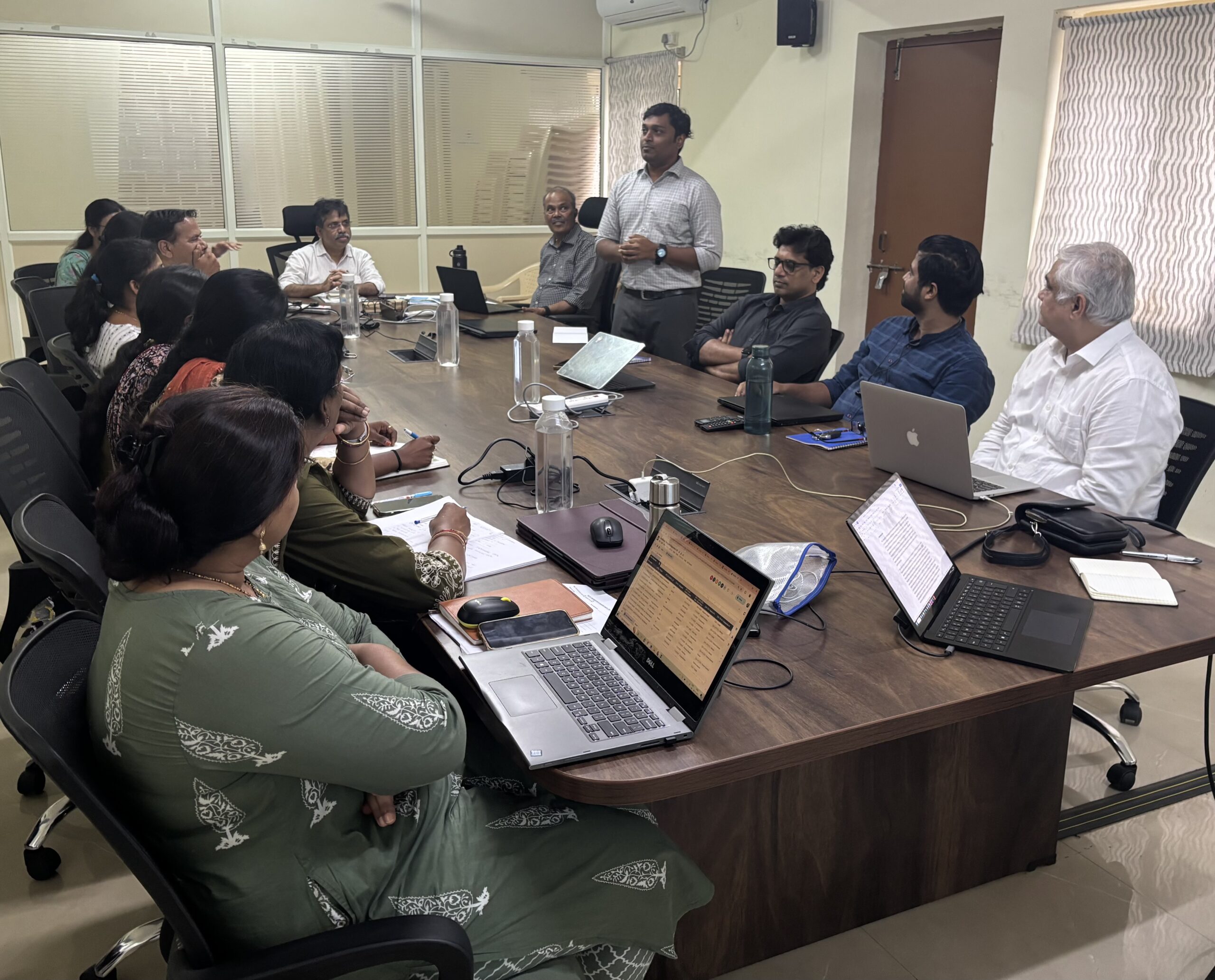
October 2025
September 2025
The University of Reading (UoR) recently hosted an online workshop as part of the Phase III deliverables of the Andhra Pradesh Community-Managed Natural Farming, India (APCNF) research collaboration. The session focused on co-developing the household economy pilot, a key component of the ongoing research partnership with Rythu Sadhikara Samstha (RySS). Professor of International Development, Henny Osbahr, delivered the capacity-building briefing highlighting the value of the household economy approach, its proposed design, and the tools for establishing a baseline in Anantapur District, as agreed with the RySS team during the March planning workshop.
The session generated a productive group discussion on refining the pilot design, ensuring alignment with APCNF priorities, and exploring how RySS can strengthen its broader monitoring and evaluation systems. Participants came from various disciplines and institutions, such as academia, science, monitoring and evaluation, Deloitte, and the University of Reading.
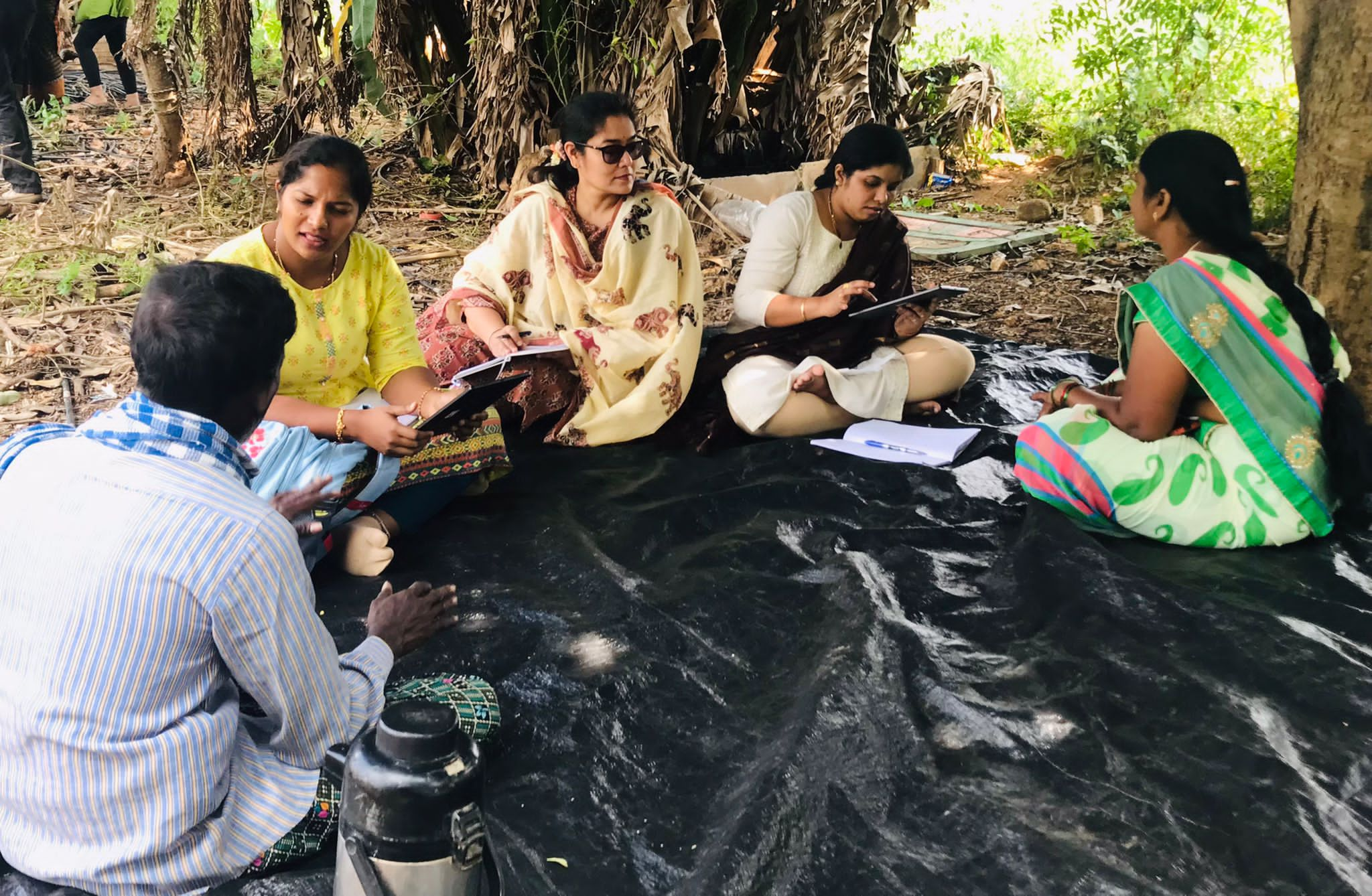
August 2025
The University of Reading is set to engage farmers practising Andra Pradesh Community Managed Natural Farming (APCNF) through an innovative Forum Theatre (FT) approach, as part of its ongoing collaborative research in India. The activity will involve women farmers from Guntur District who participated in Phase I of the project by co-producing participatory photography research. The farmers will be invited to reflect on their experiences, challenges, and success stories. The activity aims to validate earlier photography-based narratives and explore how APCNF has influenced their social, cultural, and economic lives.
Forum Theatre is an effective participatory approach with longstanding traditions in rural society, The theatre allows farmers to share their individual experiences interactively within their groups. The responses and interventions gathered from the spectators will generate more evidence on the impact of natural farming to the community.
Grady Walker, a Senior Research Fellow at the University of Reading, explained that the Forum Theatre will be guided by established protocols developed by Augusto Boal, but adopted to fit the context and reality within the farming communities of Andhra Pradesh.
The goal of the APCNF research project is to better understand the biophysical processes of natural faming, and to identify entry points for applying the findings to expand natural farming on a wider scale in Andhra Pradesh and beyond.

April 2025
We’re happy to announce our first interdisciplinary publication, which encompasses work from both the Social Science and Soil Science teams.
“Our research approach brought together soil scientists who sought to understand the benefits natural farming provided to the soil and to ultimately evaluate the yield and income gains being reported by farmers, with social scientists whose interest it was to understand the complexity of adoption decision-making in context.”
Bringing the two disciplines together generated insights on the multifaceted socio-economic and environmental benefits. These insights could not have been achieved from either discipline alone. You can read the full article here.
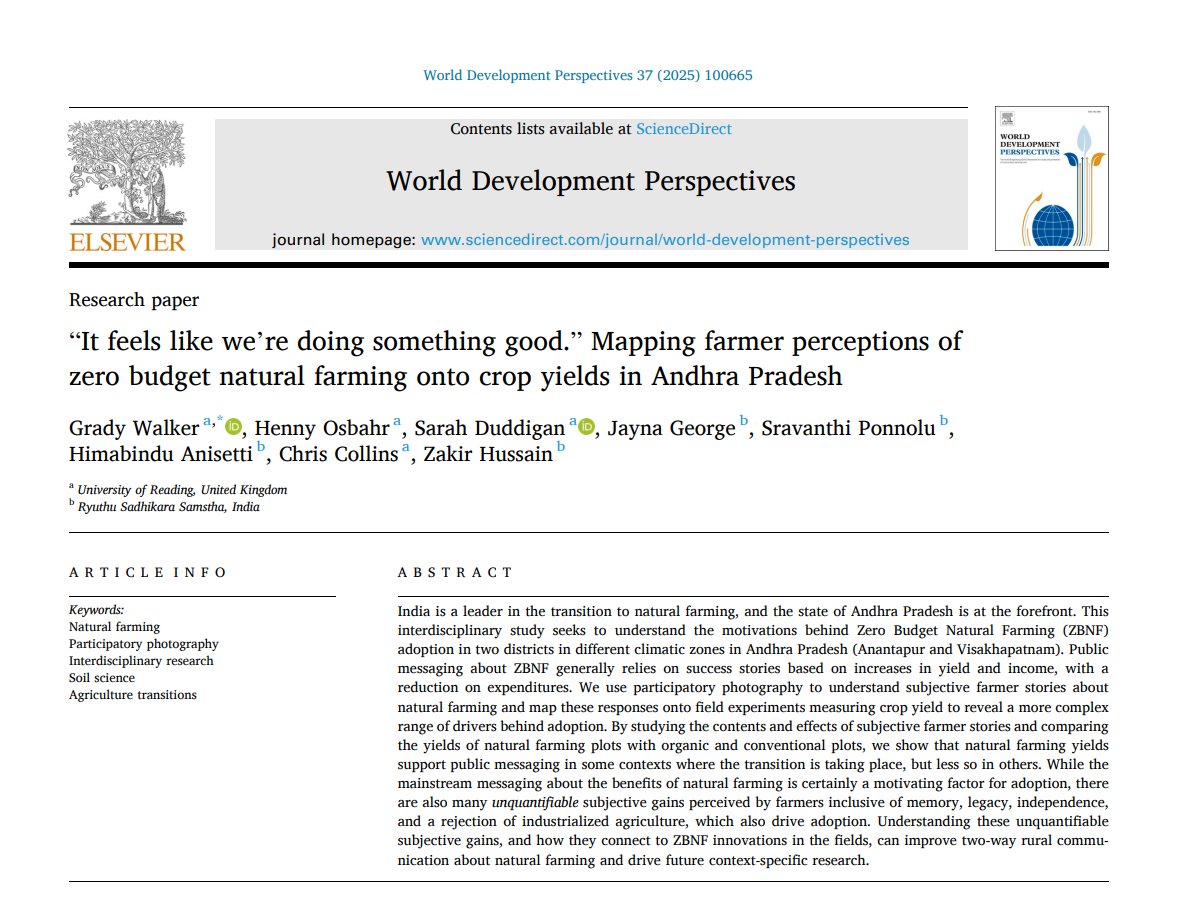
March 2025
The new Phase III workshop took place at the RySS offices in Hyderabad. The team co-designed the research design and methodologies for the programme of work. This focused on the data variables and locations to validate the biophysical experiments at expanded locations in Andhra Pradesh and a pilot study to create a household economy baseline in Anantapur to expand initial insights from the Phase II gendered survey.

“We had identified evidence in Phase II that more marginalised women practising APCNF in the rainfed area were able to exercise more control over income and expenditure of their production, reinforcing household resilience and food security, as well as illustrating social change,” said Henny Osbahr, Professor of International Development, who is also the Research Lead.
She added that the workshop provided an opportunity for the implementing partners to work with the Research Coordinators and Young Research Fellows to start data collection.
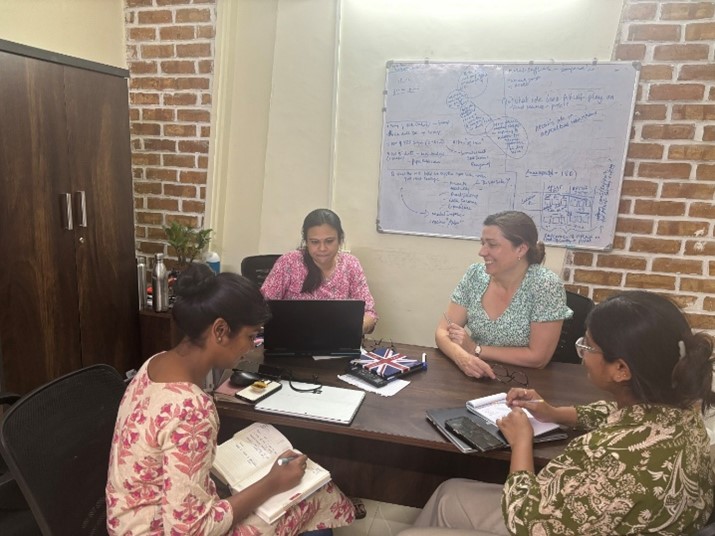
March 2025
The University of Reading is delighted to announce a finance extension to our partnership with Rythu Sadhidkara Samstha (RySS), Government of Andhra Pradesh, under the IGGAARL partner research programme. The collaborative programme of work for Phase III is between March 2025 and December 2026. We ask ‘does natural farming enable improved economic and agronomic outcomes and how can its adoption support wider application?’ The interdisciplinary research includes further empirical work to test if natural farming improves soil health and resilience to climate stress, livelihood economic outcomes and the reasons for adoption through cultural, economic and agronomic benefits.

February 2025
The University of Reading is pleased to announce a finance extension to its partnership with Rythu Sadhikara Samstha (RySS), a non-profit organisation established by the state government of Andhra Pradesh in India, under the Indo-German Global Academy for Agroecological Research and Learning IGGAARL) partner research programme.
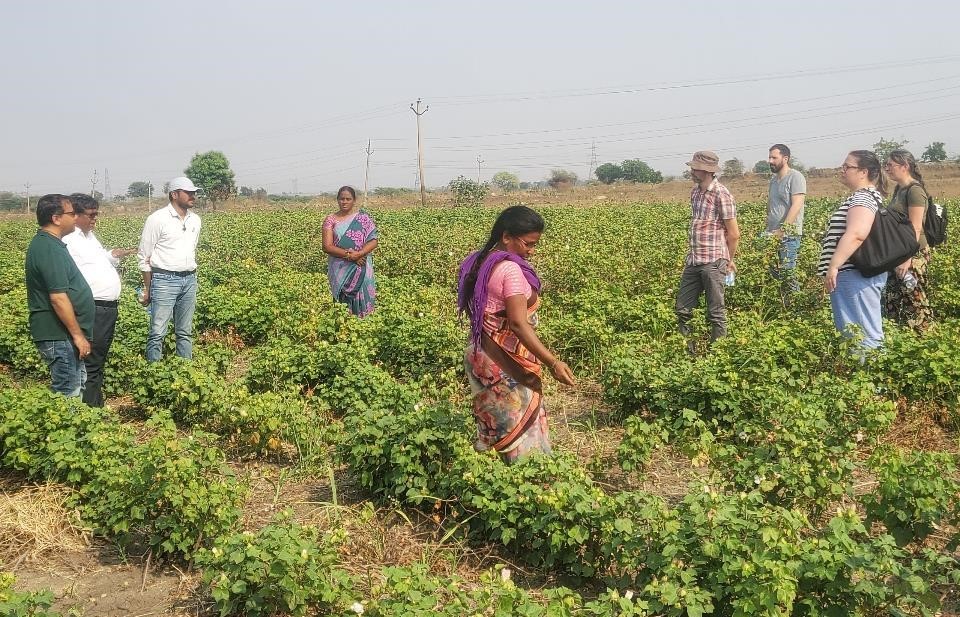
The collaborative programme of work for Phase III runs from March 2025 to December 2026 with a key research question: ‘Does natural farming enable improved economic and agronomic outcomes and how can its adoption support wider application?’
The interdisciplinary research comprising soil and social scientists from the University of Reading will conduct further empirical research to test if natural farming improves soil health and enhances resilience to climate stress, improves livelihood economic outcomes . It will also explore the social, cultural, economic drivers influencing the adoption of natural farming practices. For more information, please visit https://apcnf.in/
October 2024
We’re happy to announce another publication from the RySS and UoR collaborative project. ‘Quantifying the contribution of individual inputs used in Zero Budget Natural Farming’, provides valuable insight into the potential implications of partial adoption on yield. You can read the full article here.
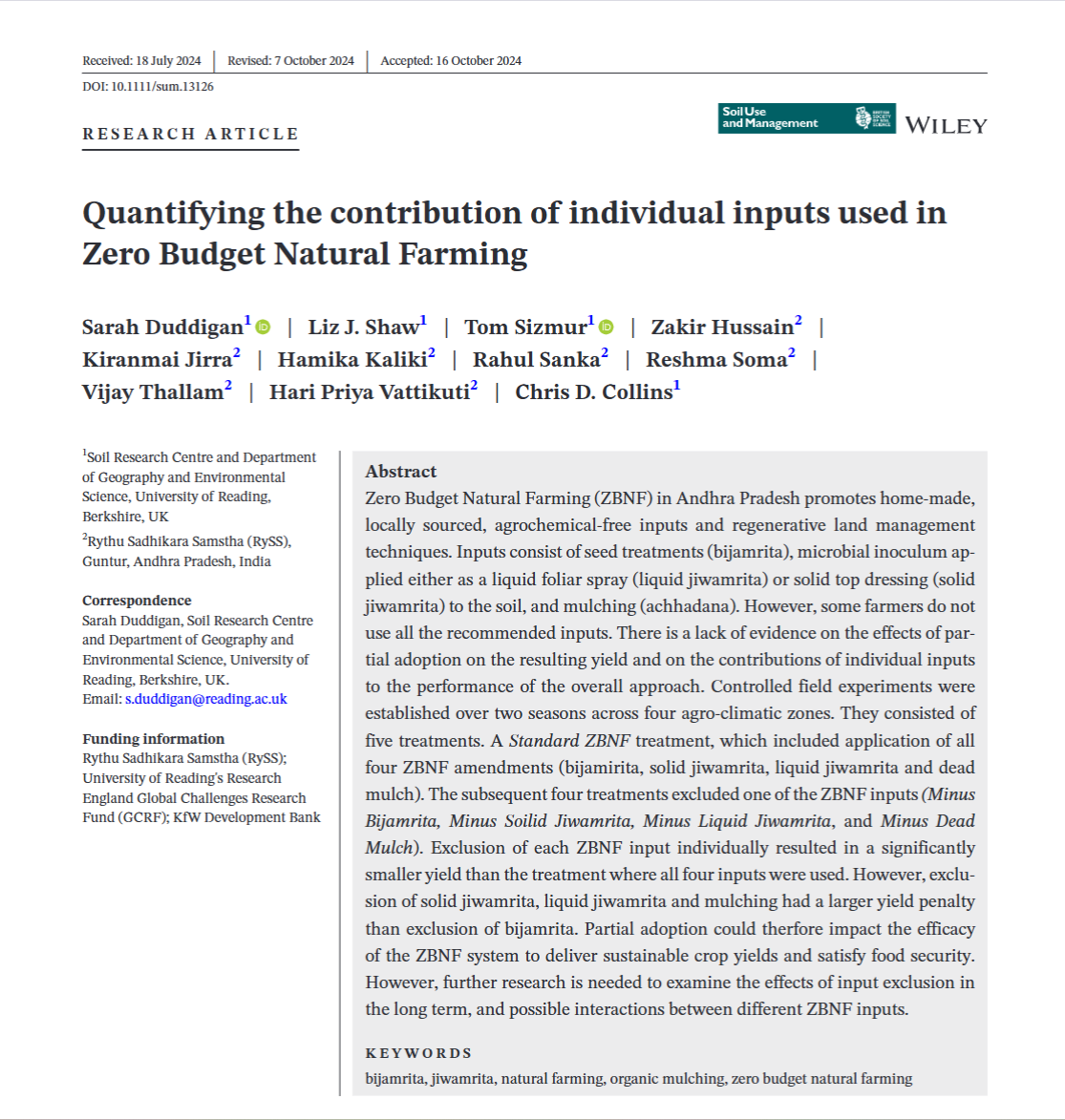
June 2024
We’re happy to announce that we have compiled the photographs taken by the women of the farmer self help groups into a publication. You can find an open access copy of ‘A Secured Life: Photo stories of natural farming adoption in India’ here.
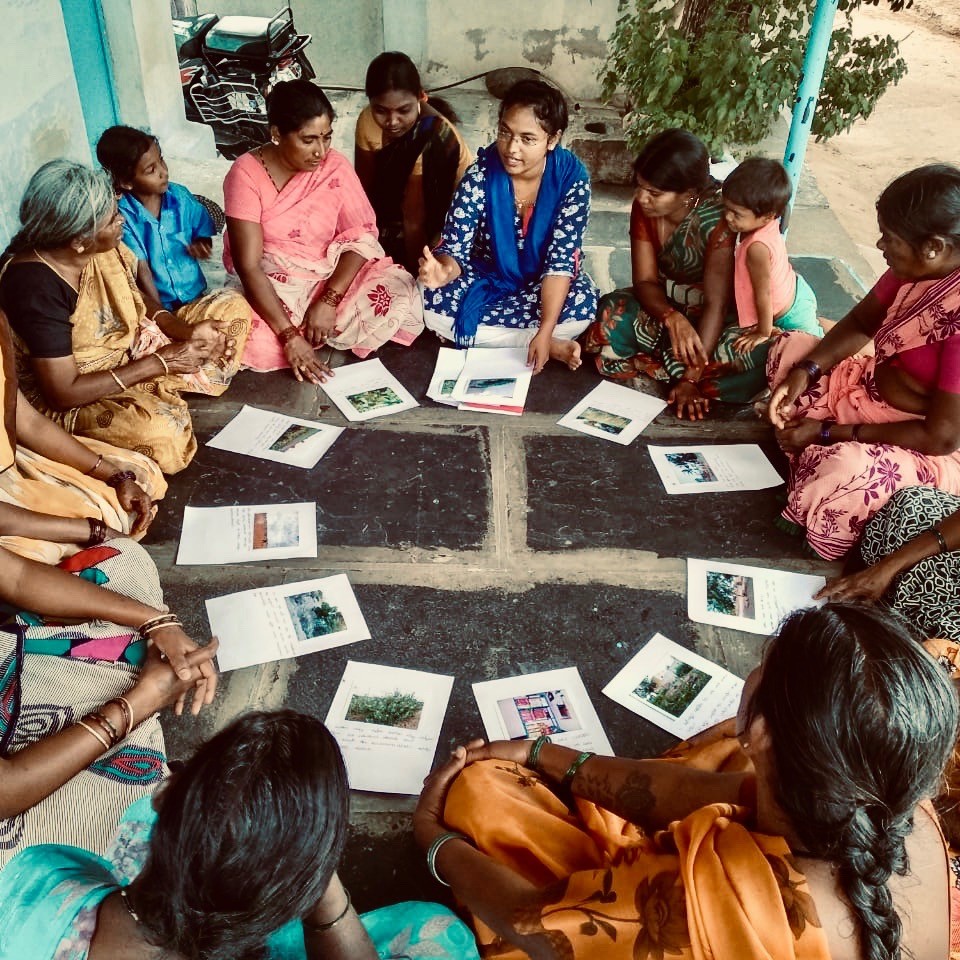
April 2024
We’re delighted to receive a runner-up prize at this years University of Reading Research Awards. This recognition in the new Interdisciplinary Research category means a great deal to us. You can read more about the event and the project here.
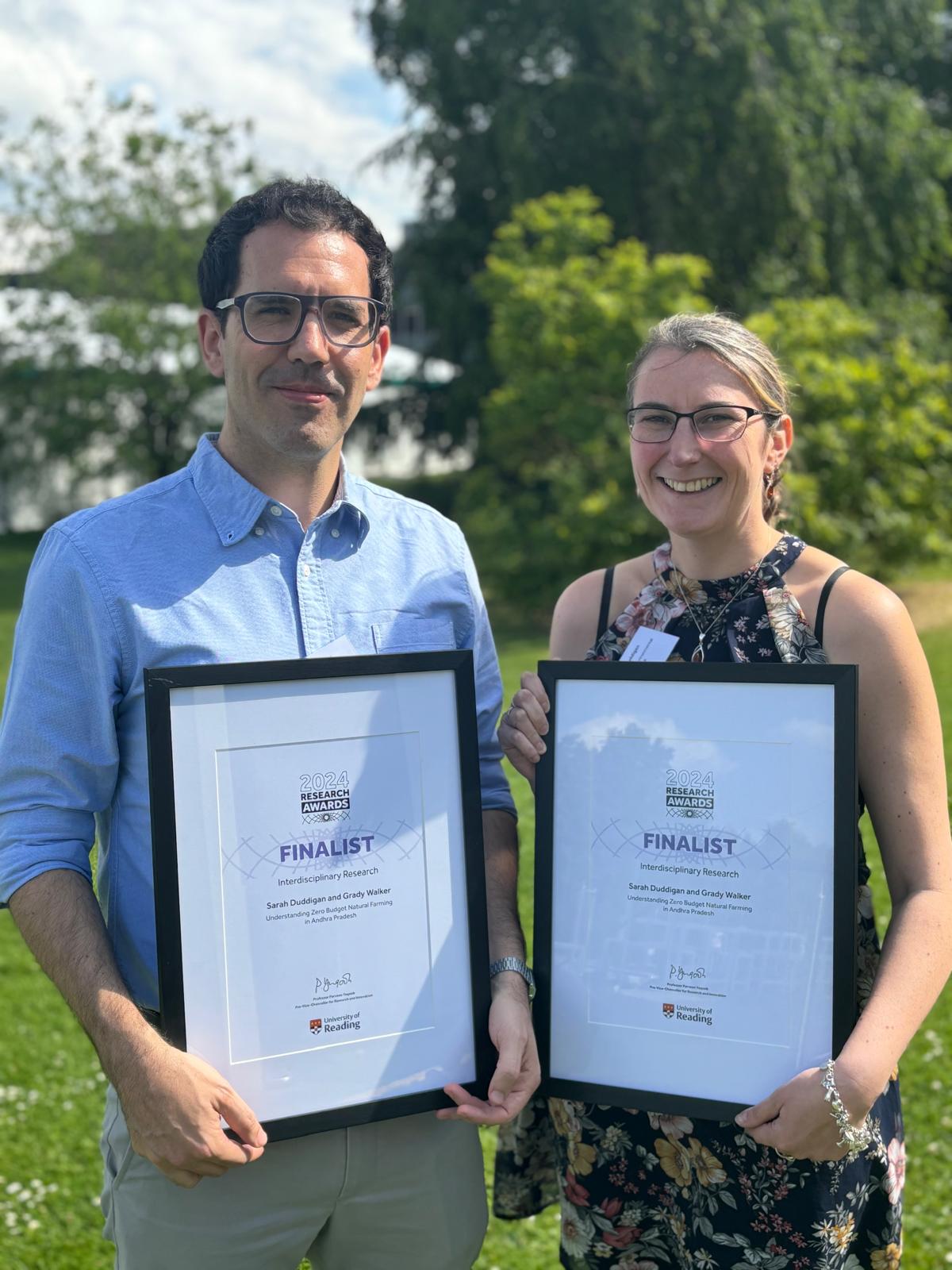
March 2024
Professor Chris Collins and Professor Henny Osbahr visited India in March 2024 for project meetings with RySS colleagues in Hyderabad, Guntur and their Academy near Anantapur, a tour of a farm that has adopted natural farming, and meetings with researchers and Government in New Delhi. The focus was on planning the next 2 years of activities from 2024 to 2026 on community natural farming, funded by KfW through RySS. This will include completion of biophysical monitoring of APCNF fields and conventional farming fields around Anantapur, Andhra Pradesh, identification of comparative study locations in other parts of India to expand the research approach, and a series of workshops and student exchange opportunities with the Academy.
July 2023
This month Grady Walker, Sarah Cardey and Sarah Duddigan were in Lyon, France, to represent the team at the International Association for Media and Communication Research (IAMCR). Over 1,700 papers were presented over the course of the week and the team had the opportunity to present the project in the ‘Perspectives on rural communication and agricultural development‘ session. Thank you to everyone who came to talk to us and to the other presenters for talking to us about their fascinating projects.
June 2023
This month we have started to install soil moisture and temperature probes in our study farms. Rather than giving a reading at a single point in time, these probes are fitted with a data logger so that measurements can be taken every 15 minutes. The data is stored in the probes internal memory to be collected later. This will provide us with detailed information on soil moisture and temperature in the farms, these were found to be important factors in the efficacy of natural farming in our previous research, which you can read here.
May 2023
This month Prof Chris Collins and Dr Sarah Duddigan visited Anantapur to meet with field staff, discuss data and visit some farms in the district. These trips are key knowledge exchange activities between RySS and UoR team members. UoR can learn more about the 365DGC system and get a better idea of context through visiting and talking with the farmers, and can train RySS field staff in field research techniques.
April 2023
This month we are very excited that our research has been featured in the Times of India. You can read the full article here.
March 2023
We are happy to announce that the we have published the results from our field experiments comparing natural farming to organic and conventional alternatives. You can read our paper called ‘Natural farming improves crop yield in SE India when compared to conventional or organic systems by enhancing soil quality (which is free to access) here.
Once again we would like to thank everyone involved in the work, especially the Natural Farming Fellows who maintained the experiments.
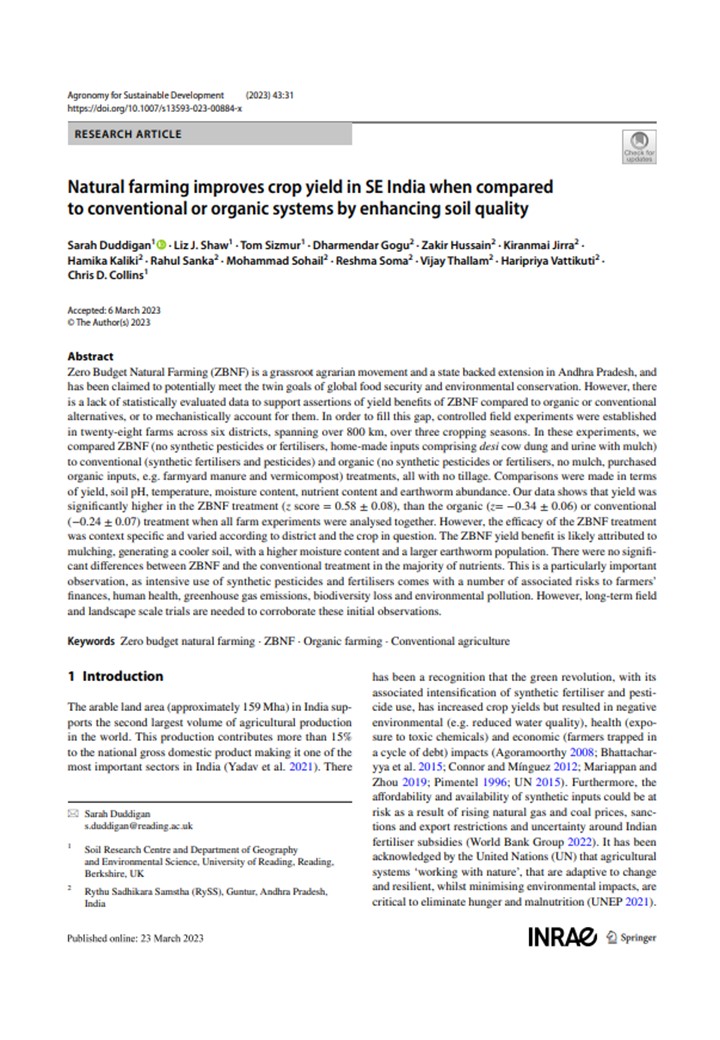
February 2023
Meteorological stations have now successfully been installed in four different locations across Anantapur. The climatic data they collect (temperature, rainfall etc.) will help us understand the local climate in different mandals across the district, and perhaps help us to interpret any differences in natural farming performance we might observe across the district in the future.
January 2023
This month the second phase of our project is well under way! The soil science team are busy conducting regular visits to 60 farms in Anantapur. Thirty farms which are practising natural farming and have adopted ‘365 green cover’ (live mulching/ green cover for 365 days of the year). Each of these farms have been paired with a conventional farming neighbour for means of comparison of the two farming management techniques. Each farm will be visited monthly by a member of the team. Keep an eye on our website for updates on this exciting new phase!
December 2022
This month we celebrated World Soil Day! To mark the day Dr Sarah Duddigan wrote a blog post for the University of Reading talking about the biophysical side of our project. You can read the blog here.
Dr Sarah Duddigan and Dr Grady Walker were also given the opportunity to present an interdisciplinary presentation to a mixed audience of colleagues from the departments of Sustainable Land Management and International Development at the University of Reading. They presented on ‘Understanding the adoption of Zero Budget Natural Farming in Andhra Pradesh, India’. The presentation was well received, and we would like to thank all who attended. They hope to publish the results of this interdisciplinary work in the new year, keep an eye on the website for updates.
November 2022
This month three University of Reading colleagues Mondira Bhattacharya, Grady Walker and Sarah Duddigan travelled to Andhra Pradesh to conduct training and initiate Phase two of our collaborative project. Focusing on the low rainfall district of Anantapur, we are surveying farmers who have adopted ‘365 green cover’ (live mulching/ green cover for 365 days of the year). This forms part of their Andhra Pradesh Community managed Natural Farming (APCNF), formally ZBNF, practise in this district.
Grady trained Diksha in the use of visual methods and video storytelling as a process of thematic investigation. Diksha will be working with natural farmers to develop case study stories that integrate the themes of dietary diversity, food security, and migration, into narratives about the APCNF innovation known as 365 Days Green Cover. After a successful training, Diksha took possession of the video and training equipment, and she will begin work on her first case study in Anantapur in December.
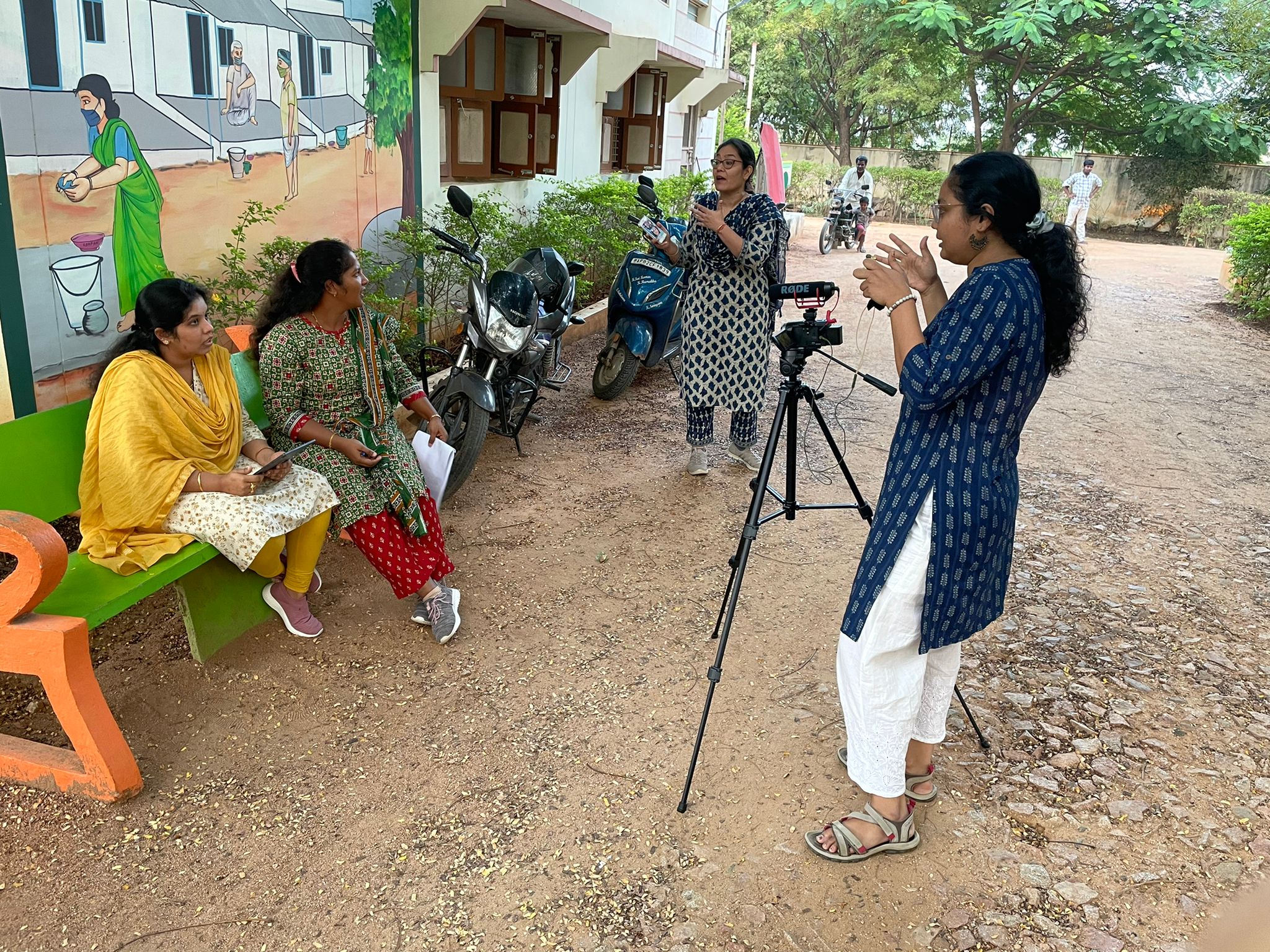
The impact of 365 Days Green Cover (365 DGC) as part of APCNF system on local economies is being assessed by a questionnaire based socio-economic survey of a cross-section of farming households. The survey will be carried with 300 farmers. All farmers to be surveyed will be further equally divided into male and female conventional and 365DGC farmers. The context of this sampling framework is to study the gendered nature of income, livelihoods, dietary diversity, innovation adaptation, and decision making among 365-DGC vis-à-vis conventional farmers. The survey data collection will be conducted using the ‘KobotoolBox’ software and training on usage of the software on handheld android devices was imparted to local colleagues. The survey questionnaire or survey tool was prepared by UoR and RySS. During her visit, Mondira and the RySS team piloted the tool and the data collection software in a village in Anantapuram, and further revised it based on discussions with farmers and collegues. The team had a great collaboration and wonderful interaction with the local partners and farmers.

Alongside the social science team, the soil science team were also able to meet for planning and training for the biophysical component of the research. Twenty-five pairs of adjacent farms (one conventional and one 365DGC) across the district were selected and approached to take part. The team will visit these 50 farms regularly for surveys, field measurements and soil sampling. The methodology was co-designed at a workshop held in Hyderabad earlier in the year. Sarah went through the field guide, sampling strategy and trained her colleagues (Achuthan, Pushpa and Sai Latha) on new equipment that will be purchased for the new phase of the project. Results from Phase one of the project suggested that moisture retention in the APCNF system is an important component of the system (you can read the first paper here). Therefore, monitoring of soil moisture and the water balance will be an integral part of the next phase.
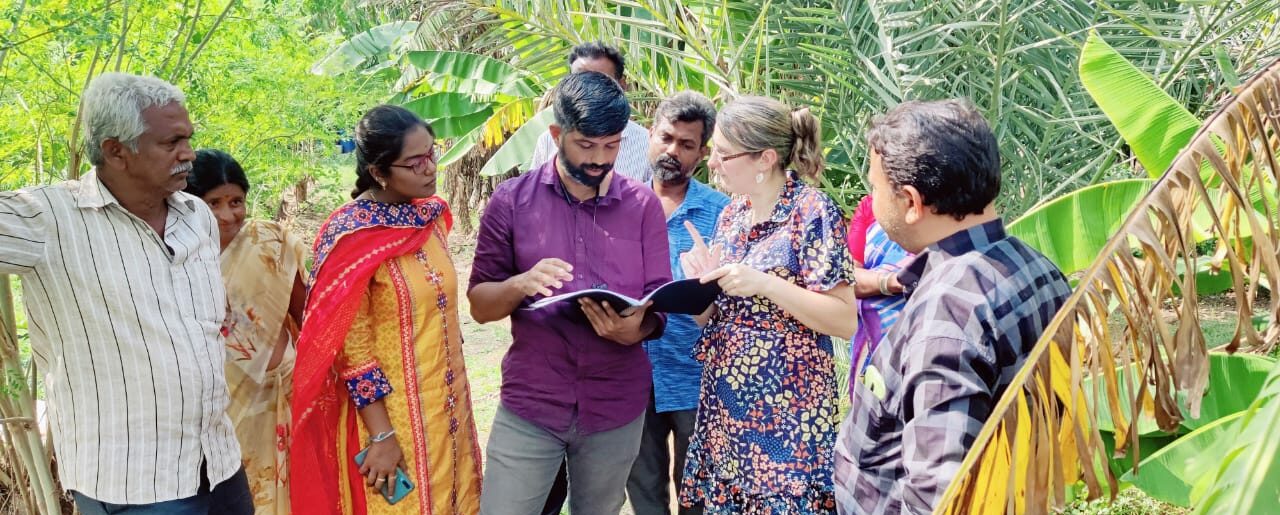 As always, the UoR team had a great trip and would like to thank our colleagues for hosting us. We’re all excited about the next phase working together and urge you to keep an eye on the project website for updates.
As always, the UoR team had a great trip and would like to thank our colleagues for hosting us. We’re all excited about the next phase working together and urge you to keep an eye on the project website for updates.
October 2022
This month the team welcome Diksha Shetty to the project. Diksha will take over from Sravanthi, who has moved to a new position. The team wishes Sravanthi all the best with her new role and thanks her for all the amazing work she did on the project over Phases 1 and 2.
Diksha Shetty is a Project Executive working in training and capacity building thematic of Rythu Sadhikara Samstha, Andhra Pradesh. Diksha completed her Bachelor’s and Master’s in Earth Science. She worked in National Institute of Oceanography prior to joining development sector. She has worked in capacity building of low-income high-risk youth community in Teach for India prior to working in RySS. Policy strategy, data analysis, gender and sustainability are her areas of interest. She will be working with the social science team on participatory videos.
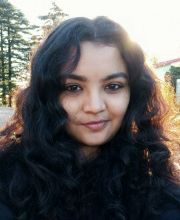
September 2022
This month we are happy to announce that Dr Mondira Bhattacharya has joined our team. Mondira is a Senior Research Officer and Associate Lecturer at the School of Agriculture, Policy and Development at the University of Reading, UK. Her academic interests lie in food and nutritional security, rural development and policy implications on the concerned farmer segment, especially in low- and middle- income countries. Before joining the University of Reading in 2020, she had worked for non-profit organisations in India for several years in various capacities. Mondira has a PhD in Economic Geography from Jawaharlal Nehru University, New Delhi, India. Needless to say the team are excited to work with her and learn from her valuable experience.
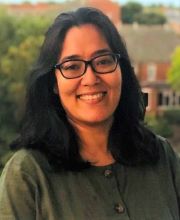 August 2022
August 2022
Interdisciplinary working is at the heart of our project aims, so we were delighted to be given the opportunity to present our project in the ‘Interdisciplinary soil science for impact’ session of the World Congress of Soil Science this month. The World Congress of Soil Science is a leading international conference, currently held every four years. This year’s congress was organized by the British Society of Soil Science with the theme “Soil Science, crossing boundaries, changing society”, with around 1,800 registered delegates. Dr Sarah Duddigan and Dr Grady Walker represented the team’s work in soil and social science. They argued that by understanding the system as a whole, inclusive of both the biophysical processes and the societal structures in which ZBNF is embedded, a complex system can be analysed through an interdisciplinary lens, providing the research team with a richer portrait of natural farming.
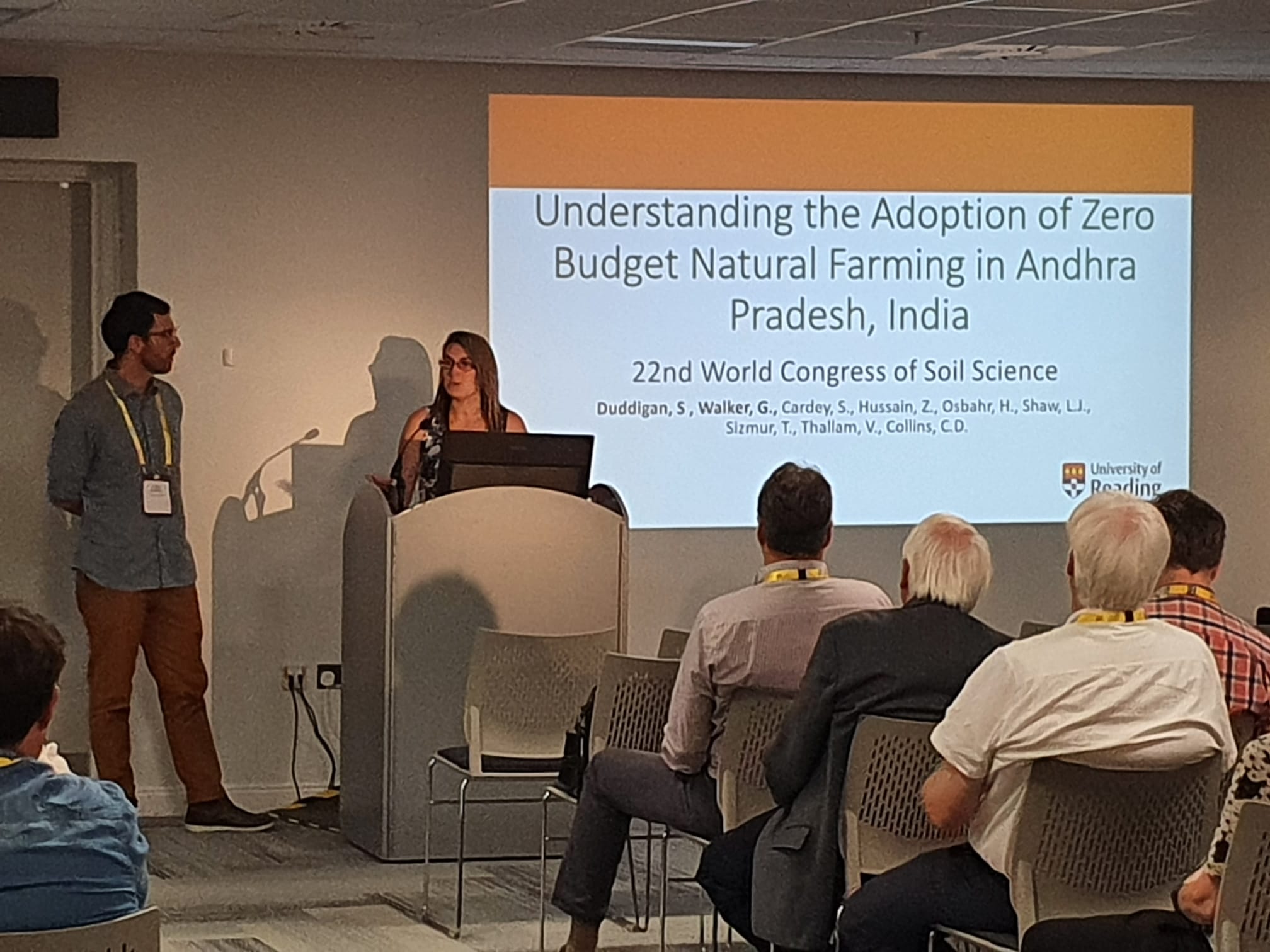
Sarah presented the field experiments that have been conducted in Andhra Pradesh, which are described in the team’s recent paper, and revealed that the performance of ZBNF agriculture, when compared to conventional or organic farming yields, is largely congruent with the public messaging. Grady added that the participatory photography—focusing on farmer perceptions of ZBNF innovations—demonstrated that farmer-defined reasons behind adoption defy a simple cost-benefit analysis and point toward a combination of subjective gains not limited only to yield and income but inclusive of memory, legacy, independence, and a rejection of industrialized agriculture.
Together, the parallel soil and social science approaches reveal the effect of ZBNF on the soil, as well as the perceptions of those transformations among the community members themselves, including the way those transformations became part of the overarching narratives farmers used to define their lives. Watch this space for more work on this in the future!
The presentation was well received and we would like to thank the audience for their interest, and the organisers for giving us the opportunity to present our work.
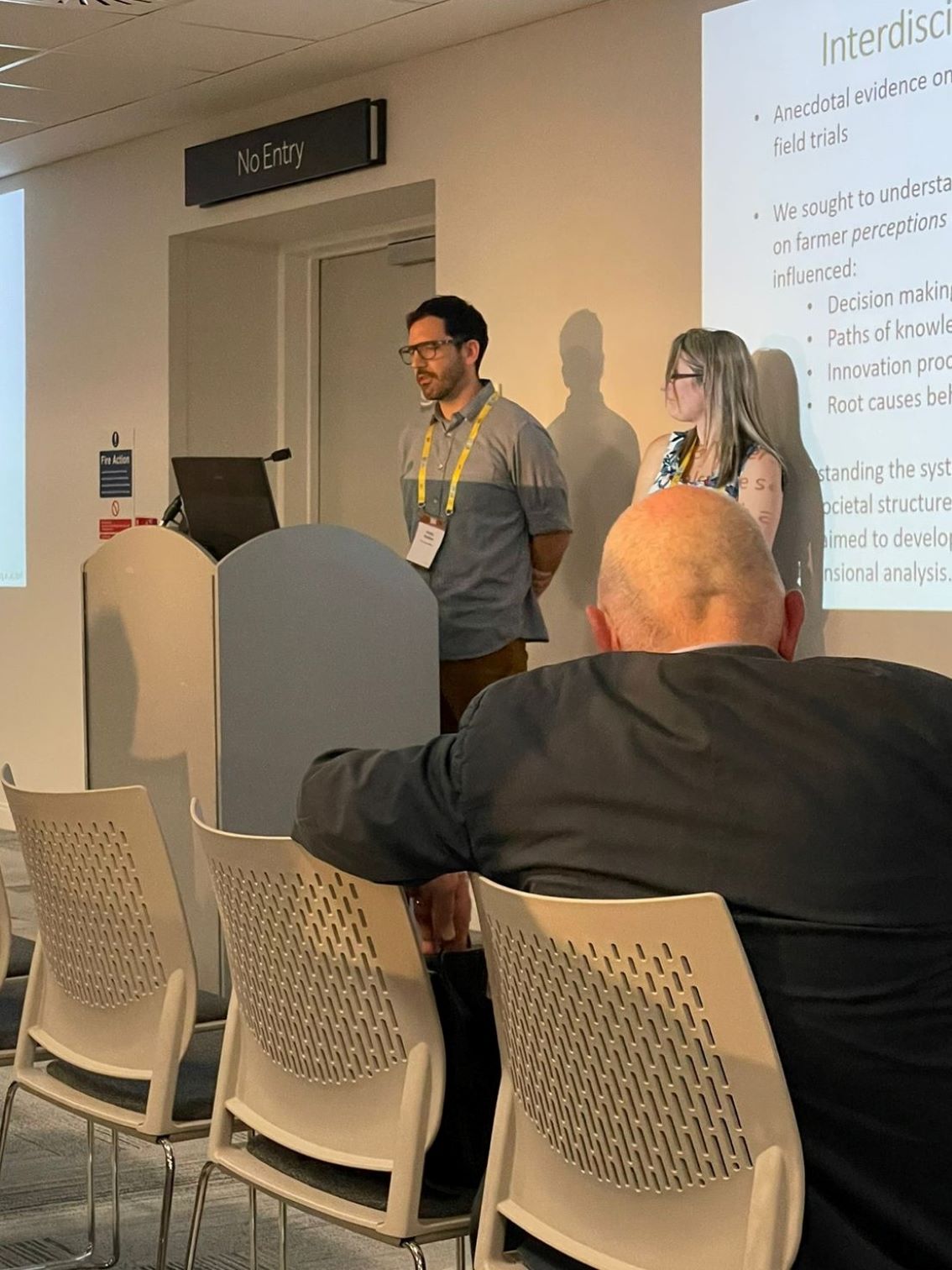 July 2022
July 2022
This month we were fortunate to be able to participate in the online FAO Global Symposium on Soils for Nutrition. The event had 9000 registered delegates from across the world, and aimed to bring science and policy together to review the status and challenges of soil fertility in relation with crop, animal and human nutrition. We presented our interdisciplinary work as a poster at the event and were thrilled to achieve third place overall with more than 7,300 votes! Thank you to the organisers for a fantastic event, and to all who read and voted for our poster. You can view the poster we presented here.
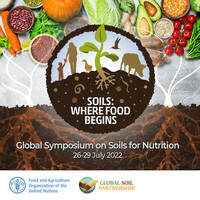
June 2022
We’re very happy that we have three new members joining the team. Welcome to Achuthan, Pushpa and Bhargavi! You’ll be hearing about them, and the work they will be conducting, in the coming months.
May 2022
Last month the University of Reading research team was in Anantapur, Andhra Pradesh to visit farms where farmers were practicing the natural farming innovation known as 365 Days Green Cover (365 DGC). Anantapur is a district known for water scarcity and high rates of seasonal migration. Agricultural livelihoods are defined by higher levels of exposure to drought and crop failure, often resulting in an inability to repay loans—one of the main drivers of the tragic ‘farmer suicide’ phenomenon that natural farming aims to address. The objective of our scoping visit to Anantapur was to gather information about farmers practicing 365DGC and understand its impact, both on soil and on livelihoods. The social science team visited farms alongside the soil science team and held a focus group discussion to understand issues from the perspective of women who are members of Self-Help Groups. One of the overarching purposes of the social science inquiry in this phase of the research is to understand how farmers who have adopted 365DGC are connecting the adoption of the innovation to impacts on nutrition, food security, and migration at the household, community, and societal levels.
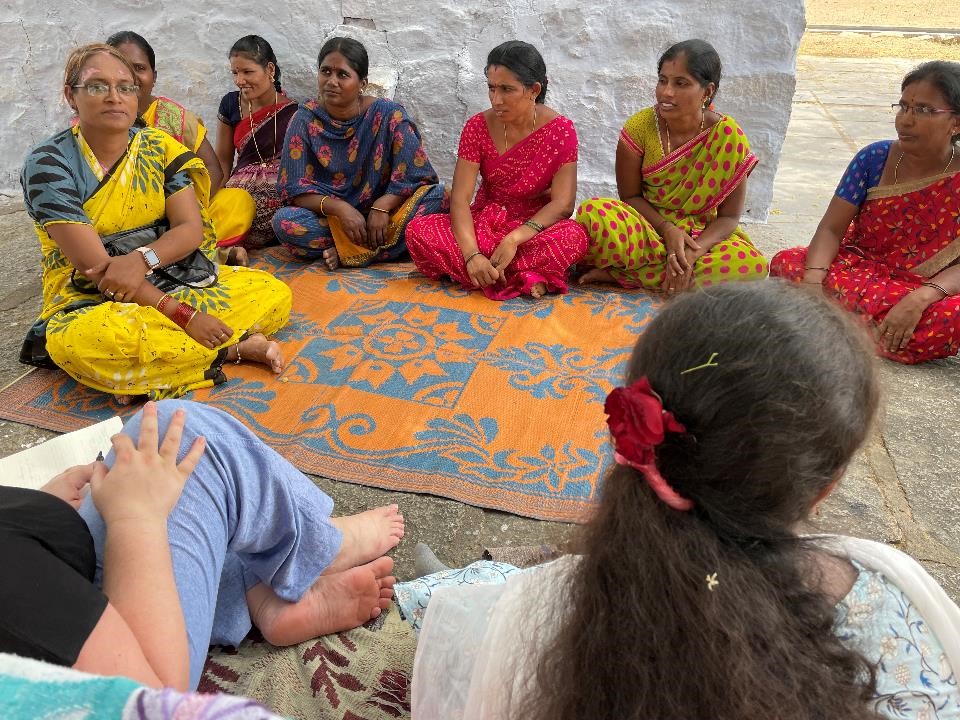
The soil science team spent time with the farmers to learn more about the ZBNF amendments used in Anantapur and the 365DGC model. We visited several 365DGC farms, across different soil types and with different crops growing. These visits will aid us in the experimental design of the second phase of our research project, where we hope to contrast the 365DGC with conventional alternatives which leave the land bare in the driest part of the year in district. The second phase study will investigate a number of soil parameters in these two systems including (but not limited to) water use efficiency, soil physico-chemical properties and the microbial community. Keep an eye on our research activities and news pages for updates on the research design and progress through the second phase of the project.
We’d like to thank all of the farmers and community members for spending so much time with us and we look forward to working with you in this exciting new branch to the project.
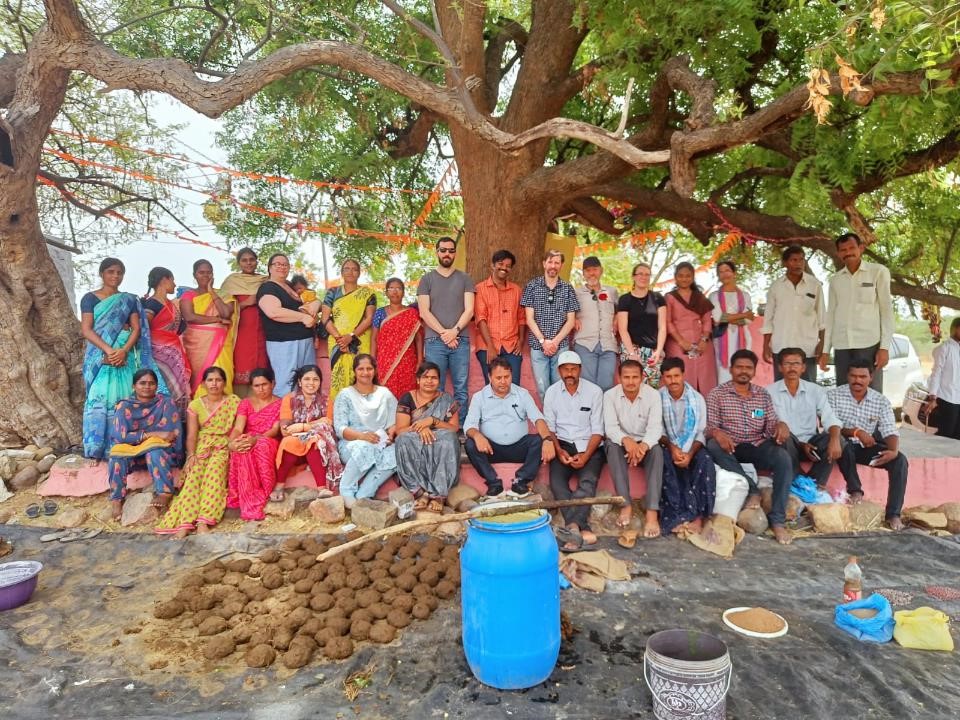
April 2022
On the 25th and 26th April, the University of Reading and RySS held a workshop in Hyderabad with respected Indian academics and practitioners in the field of both soil and social science. The purpose of the meeting was to showcase the research findings from Phase I of the ZBNF/APCNF project and to discuss the interdisciplinary research design for Phase II of the project. The workshop was engaging and productive and resulted in important contributions in respect of ideas for both the soil and social science research designs. These contributions are much appreciated and will be used to refine our research plans for Phase II. We would like to thank all those who participated, and we hope to be able to develop our working relationships with these participants throughout Phase II.
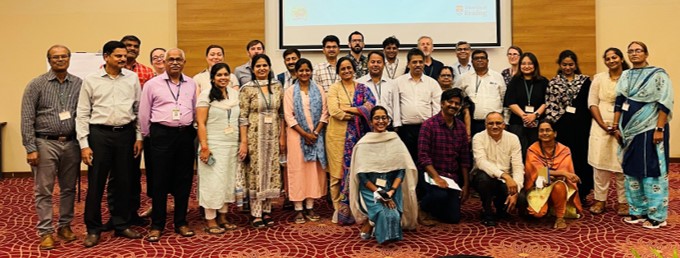
March 2022
We are very happy to welcome Dr Amanda Caine to the ZBNF team! Amanda is also an academic tutor and lecturer at the University of Reading, within the International Development and Geography Departments. She has a particular interest in gender, power and the use of ICTs, more recently within the context of climate smart agriculture. Her PhD research examined the impact of non-elite women’s use of the mobile internet in Uganda. She has spent over 25 years in the international development sector, working for different international NGOs, including NGOs specialising in the support of smallholder farmers. She also helped to set up GALVmed, the Global Alliance for Livestock and Veterinary Medicine, which aims to improve the well-being and economic progression of small-scale livestock producers. A wealth of experience she can bring to our ZBNF research.

February 2022
Some more good news for the project! Dr Grady Walker and Dr Sarah Duddigan have been confirmed for a joint presentation at the World Congress of Soil Science, taking place this summer in Glasgow. Grady and Sarah will be giving a presentation on ‘Understanding the Adoption of Zero Budget Natural Farming in Andhra Pradesh, India’ in the ‘Interdisciplinary Soil Science for Impact’ session of the conference. This is a fantastic opportunity for both the Soil Science and Social Science teams to present together. We’re looking forward to sharing how it goes!
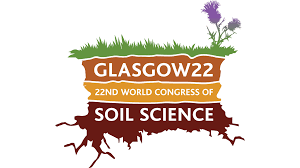
January 2022
We’re very happy to announce some of the initial workshop discussions, along with results from the Soil Science team have now been published in the journal Sustainability. Free access to the paper is available here.
Thank you to everyone involved in the work!
December 2021
We’re very happy to announce that we are going to be continuing our work in Andhra Pradesh with the support of KfW Development Bank. With their support, we will be able to deepen our understanding of the the biophysical processes and extension mechanisms of ZBNF to support its wider application. Keep an eye on our project website for new developments on the next phase of our research. In the meantime you can read more about the scheme here.
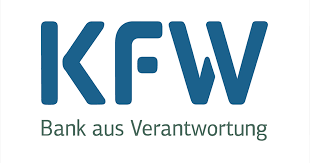
November 2021
Members of the team were very happy to attend a COP26 event on ZBNF. A fascinating session where we heard from researchers, government, and farmers practising ZBNF.
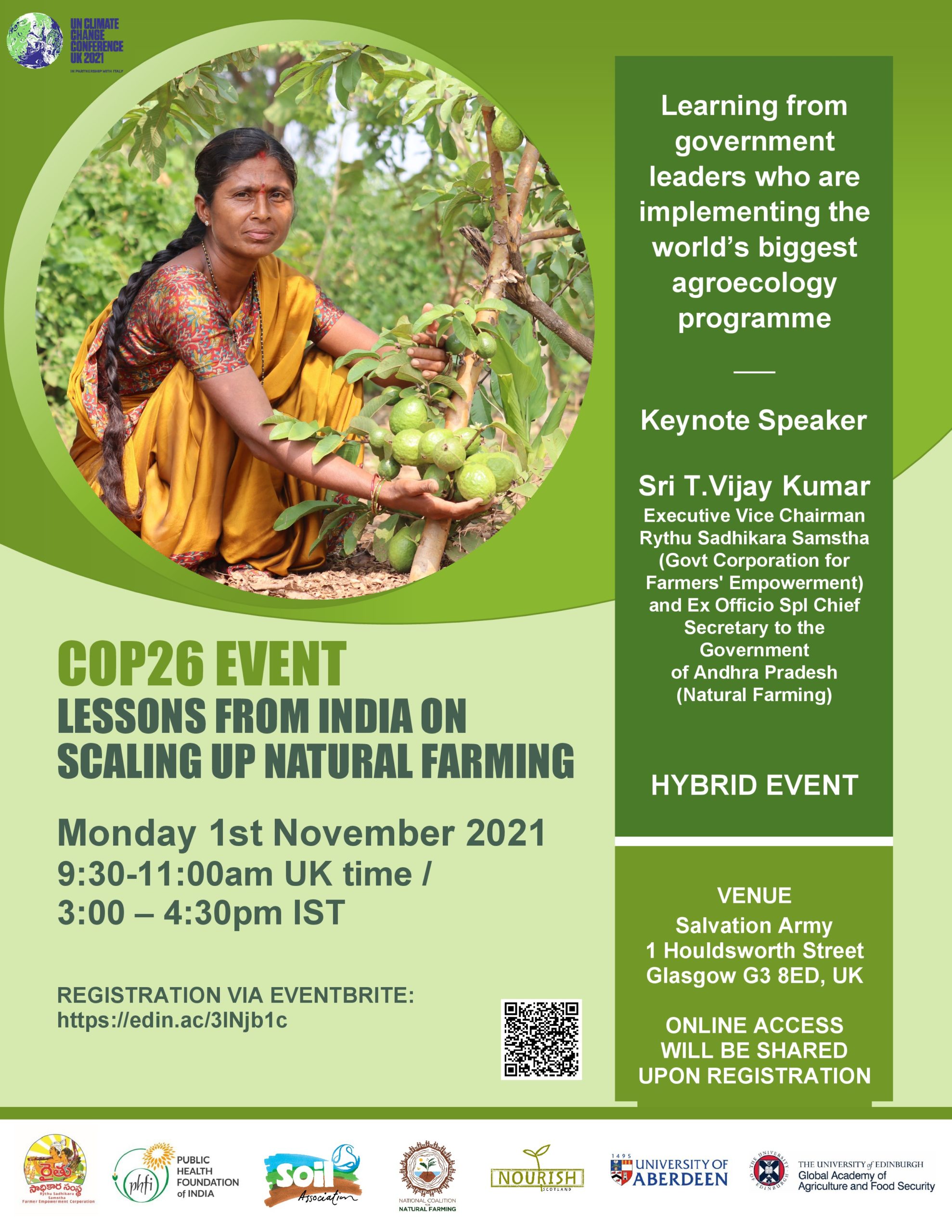
October 2021
This month Dr Sarah Duddigan presented recent results from the soil science team to a ZBNF research group, consisting of academics from UK institutions (Aberdeen, Cambridge, Edinburgh among others). A great opportunity to share in the advances in the project.
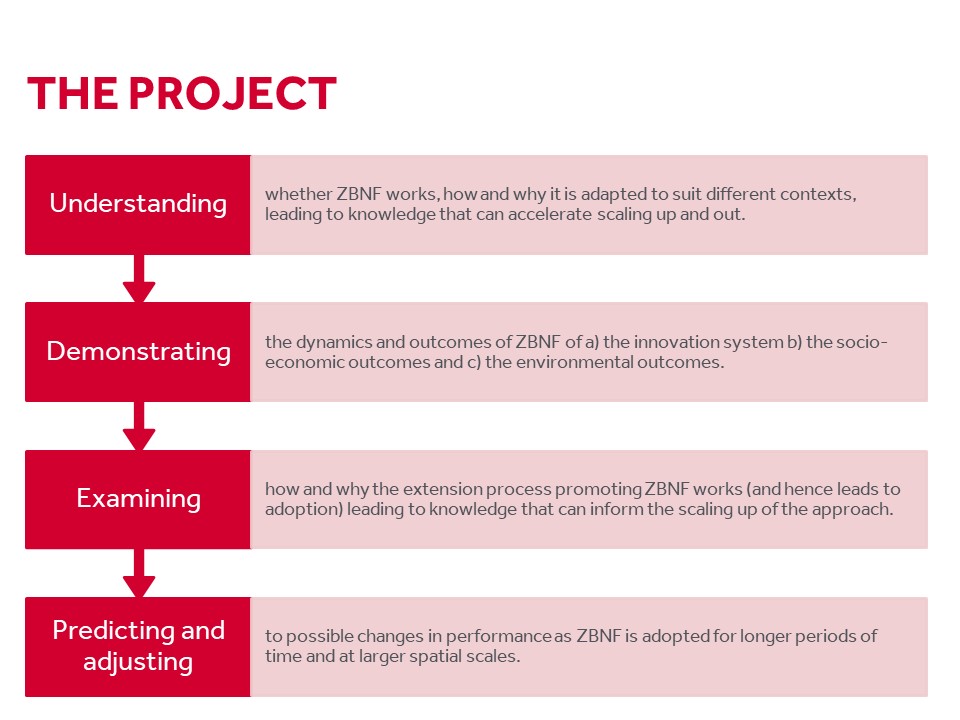
August 2021
We are happy to introduce another team member this this month. Below Sravanthi describes her experiences working with the social science team.
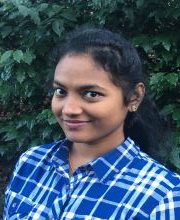
“Qualification: Graduation in Agriculture in Mahanandi Agriculture College.
Work experience: Previously worked as M.P.E.O (Multi-Purpose Extension officer) and present working as Natural farming fellow in RySS.
Job role:
*Monitoring cluster of villages.
*Maintaining model plot of one acre (Five layer model) in village by myself.
*Conducted pre-monsoon dry sowing experiment in Kharif 2018.
*Conducted Farmer Field Schools for one crop season.
* Working with UoR on Participatory Photography with two SHGs in Anantapur district.
Experience on Participatory Photography:
I have worked with Two Women self help groups i.e.,Anjali and Sri sai shgs on Participatory photography in Anantapur district, Cherlopalli village.It was a great experience for me to work with the shgs and know their views on photographs taken by themselves.Active participation was seen among the shg members.They expressed their point of views on the photographs which helped me to facilitate them and draw the Generative theme by the participants.
By this analysis as a facilitator I came to know about the views of the participants, their reality,Challenges, oppurtunities, Troubles and solutions followed by them for a particular problem.I also got an idea about their customs and traditions.The ideas behind the photographs maybe distinct for each of the participants i.e., positive voice or negative voice behind the photo.By this I also came to know about their personal lives,their way thinking.It was a great experience and good Work done by both the shgs.”
June 2021
This month we would like to introduce Jayna George, a key member of the social science team. Below she describes her experiences with the project (photo taken prior to COVID-19 pandemic).
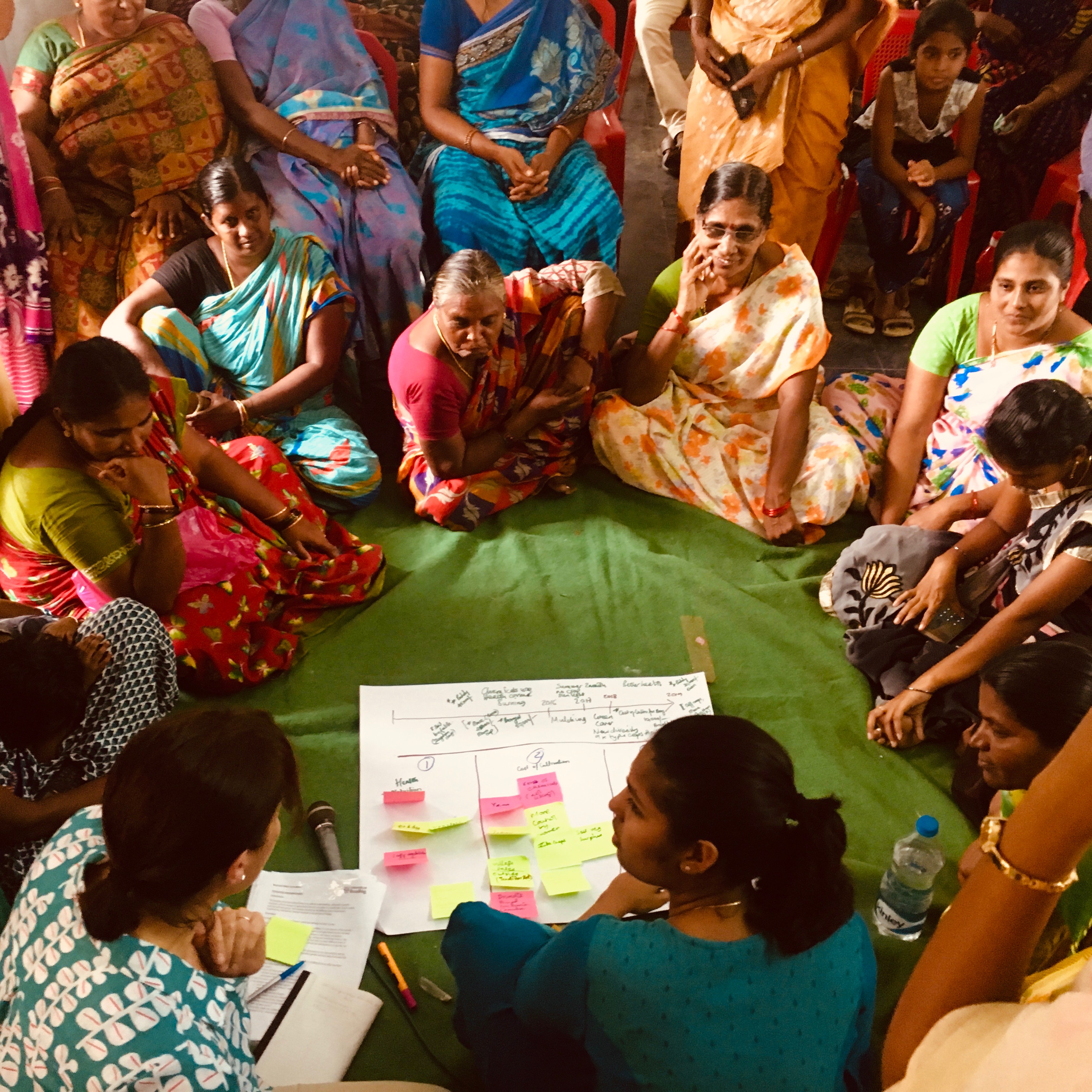
“Jayna is a Young Professionalist at ZBNF in Andhra Pradesh. She received her Bachelor’s in Mass Communication & Journalism in 2015 from Loyola Academy and her PG Diploma in Rural Development and Management from National Institute Rural Development & Panchayati Raj in India. She previously worked in the National Rurban Mission with the Himachal Pradesh government in India. She loves travelling and taking photographs.
Participatory photography with UoR
APCNF program and its vision to convert farmers to practice natural farming is the future for the world. The initial stage of the program was built and expanded through the extension methods in the field level through champion farmers, farming fellows and lead farmers. The institution building mechanism focused on the Women Self Help groups as point of communication for the implementation of Zero Budget Natural Farming.
To analyze the impact of WSHG, myself with a small team of Natural Farming Fellows were introduced to the team from University of Reading( Social Science) The participatory photography was one of the methods found to analyze this impact using certain research methods which was very new to me and my team.
The training from the team gave a picture on how it is to be implemented in the field with the WSHG groups who were of diverse backgrounds, few literate, mostly illiterate, not very exposed to the outside world, few very active and few had experience in engaging with people outside their village and districts.
The participatory method, to make it successfully engaged and involved by the women, cameras were the effective tool which brought interest among them. On the very first meeting, a selective group of SHG were asked questions on their opinions on different issues in their village – agriculture, community, farmers, crops, water, life style, education, climate, etc related. This first meeting was to have an interaction with women. Our Natural Farming Fellows were to take this group ahead for the following next sessions. They had sessions beginning with camera training, followed by discussion with the groups on various topics that the women found interesting to discuss about.
These discussions could lead to any areas depending on the women – It started with Natural Farming related topics to health, to saving money, cultural and festive and stories of villages and many more with pictures that the women themselves had taken. These were certain ways for the coordinator to understand the areas where the women were heading to in every meeting.
Every woman had the chance to present their points through photographs and a small write up on their thoughts about it. The photographs were completely taken from the perspective of the women.
While I was looking at the captured pictures after 5-6 meetings, we observed different patterns of pictures captured by each women, this started giving us an idea and perspective of these women and stories of women which was expressed in the photographs. Women spoke about various cultures in the photographs, expressed about their happiness, conveyed messages about early child marriages, their interest for their future, their farm and agriculture and a lot of living a healthy life.”
April 2021
This month we were happy to host an online workshop where we explored sustainability-based farmer networks in India. During which, participants were able to share an overview of current relevant research, and develop principles for a framework of biophysical evaluation and understanding communication processes at larger scale. the results of these discussions will form the basis of a paper. The event was attended by representatives of a number of Indian universities, World Agroforestry and FAO. Many thanks to Jules Pretty for giving the opening address. You can read more about some of the participants here.
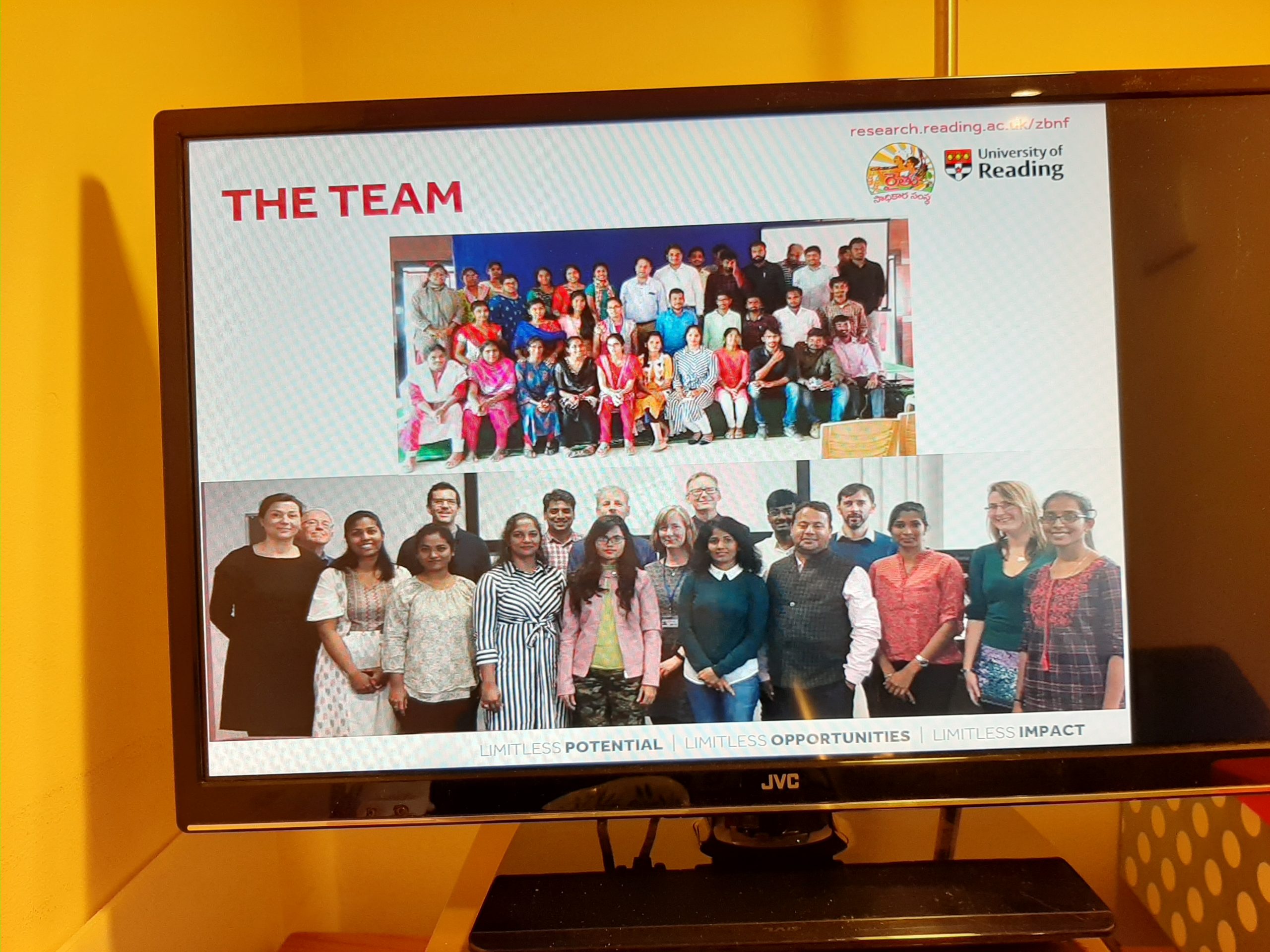
March 2021
Members of the team participated in the ICRAF online workshop “Establishing Exemplar Landscapes in the Andhra Pradesh Engagement Landscape” where we were able to showcase the work we have conducted in Andhra Pradesh and build networks with others working in the area. Thank you for the invite!

February 2021
Members of the social science team recently published a paper in the International Journal of Qualitative Methods (IJQM). IJQM is a journal that focuses on insights, innovations, and advances in methods and study designs using qualitative or mixed methods research. The authors wrote about the methodology they piloted in Andhra Pradesh as part of the ongoing interdisciplinary University of Reading project.
The methodology developed by the team uses thematic collages in participatory photography as a means to generate meaningful, contextual themes for participant investigation through group dialogue and consensus. By publishing a study of this approach in a methodology journal, the authors hope researchers in differing contexts might replicate the method and innovate further within the framework. “This method wasn’t designed to be used exclusively in the context of smallholder farmers,” said lead author Dr Walker. “If deployed in a participatory action research paradigm, we’re convinced that the investigations sparked by this method would lead to an intervention on the part of the participants, in line with Paulo Freire’s theories of critical consciousness raising,” he added.
Next up for the ZBNF social science team is continuing the analysis of the rich data generated through this method using dialogical narrative analysis, an approach that focuses on stories, those who tell them, those who listen to them, and ways that subjective interpretations of these stories can influence actions and decision making.
You can download the paper free and open access HERE
January 2021
Happy New Year!! As the third season of soil science experiments is coming to a close the Natural Farming Fellows and their Research Coordinators are working tirelessly to complete their data collection and harvest their experimental plots. This month we would like to introduce Reshma Soma, Research Coordinator of the Krishna district.
“Objectives
To obtain a respectable entry-level agriculture position in the organization where I could apply
my theoretical and practical horticultural knowledge to meet as well as exceed the company’s
expectations.
Education
M.sc.(Ag.) Crop physiology
Have done research work on Rice crop as Master’s project, titled as “Effect of graphene and
copper nanoparticles on the callus induction and plant regeneration of shiats dhan-1 rice
(Oryza sativa)” under the guidance of Dr. Pradeep k. Shukla, Assistant Professor, SHUATS,
Allahabad, Uttarpradesh.
Experience
Currently I am working as research coordinator in Ryss, Guntur, AP, India. I will be monitoring UoR experiments conducted by
Natural Farming Fellows in district level and I am conducting a type 2 UoR Experiment with ZBNF practices
Skills
Basic research experience in plant tissue culture.
Processing of Horticulture Produce and Value Addition.
Breeding of Horticultural Crops.
Production Technology of Hi-value Vegetable and Flower Crops”
December 2020
This month we would like to introduce Research Coordinator Mohammad Sohail. Sohail is a member of the soil science team, and manages the experiment being conducted in the Kadapa district. Sohail and the other Research coordinators have been working very hard to manage the large volume of experiments being conducted, whilst ensuring all personnel remain safe (Photos were taken before the COVID-19 outbreak).
“Name: M.Mohammad Sohail
Education qualifications:
M.Sc Earth Sciences
I have done master project on soil analysis in soil test laboratory under the guidance of Dr.T.Lakshmi Prasad sir, Yogi Vemana University, Kadapa
Experience: 3yrs
present working as research coordinator in Kadapa, A.P, India.
I am monitoring the UoR Experiments and 365 DGC Experiments conducted by Natural Farming Fellows in district level with ZBNF Practices.
Skills:
Soil Analysis”
November 2020
This month three of our team members (Chris Collins, Liz Shaw and Sarah Duddigan) attended the [virtual] International Symposium on Climate-Resilient Agri-Environmental Systems (IS-CRAES). The theme of this symposium was “Contributing to the United Nations Sustainable Development Goals (UN-SDGs) through the Development of Climate-Resilient Agri-Environmental Systems” and the team were able to present on our work on ‘Understanding the biophysical processes and extension mechanisms of Zero Budget Natural Farming (ZBNF) to support its wider application’. Thank you to everyone who came to see us!
October 2020
Our soil science Natural Farming Fellows are conducting experiments on their own land, so many research activities have been able to continue safely during these testing times. This month we would like to introduce Sairam, an Natural Farming Fellow in the Kadapa district who is currently running his experiment for a third consecutive season. Thank you Sairam for all of your hard work!
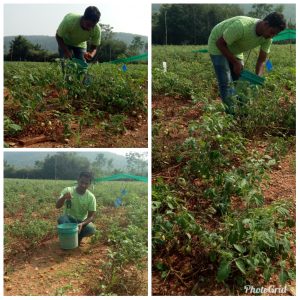
“Education
B.sc agriculture in PDKV agricultural university, Maharashtra state.
Responsibilities for Ryss
- FARMER : As a NFF, my responsibility is being role model farmer in cluster by doing farming.
- TRAINER : as a Master trainer, giving training to cluster level, divisional level, district level zbnf farmers and staff.
- RESEARCHER: By conducting short term and long term experiments in my own field on zbnf methods. Doing of Innovative research activities.
- LEARNER : To know innovative new crop models , learn extension activities at community service.
Involved in UoR experiments
- No research has been done on ZBNF. for the first time in the uor experiment by conducting zbnf, organic, chemical methods.
- To find out how earthworms populations are growing in three plots, find out what percentage of moisture is present, what changes are going in the soil.
- To find out in which plots organic carbon percentage is more.
- Plot wise Biometric observations, plant parameters difference to be find.
- To find out yield comparatives, quality and storage capacity of three different methods of crop products.
- Pest and disease comparison in different plots and how to control it.
Learned in UoR experiments :
- By doing the UoR experiment, I noticed changes in soil moisture content, soil pH changes, infiltration in the readings and observations taken in 9 plots each week .
- I have clearly observed that plant growth, height and fruits are well developed in ZBNF plots.
- I have observed how the earthworms development is in the plots and measured their weight.
- By doing mulching in ZBNF plots, I have learned that soil moisture is good than other plots, observed porous soil.
- By doing this UoR experiment, I informed the farmers in the cluster how to grow the crop in the ZBNF method and what the benefits would be there.
Hope to Learn :
- Good experience in UoR experiment done so far. I have yet to do this research work in a university of reading with good equipments, knowledge and lab facilities.”
September 2020
This Month we would like to introduce Himabindu, a Research Coordinator in the Social Science team. Here she talks about working with participatory photograpy.
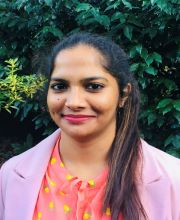
“The Experience in participatory photography was hosted by the University Of Reading in collaboration with Zero Budget Natural Farming, INDIA. Participating in this program is a great way to get knowledge on the concept of selective interests of peers. Working in collaboration with the University Of Reading has been a great experience. Collaborating with experienced people from the university team has been fantastic exposure to the subject.
- I have worked with two women self-help groups, Namely Sri Venkateswara Group and Ankammathalli Group on the participatory photography in Dhavuluripalem village, Guntur District, Andhra Pradesh, India.
- During my first gathering with the Sri Venkateswara group, I realized that participatory photography is a very effective way of research which gave me a chance to know more about the members of Women’s Self Help Groups.
- Through the first generative topic, I comprehended that the selective topic depends on the encounters and understandings of SHG individuals which builds up good coordination among the team.
- The most interesting part of all group gatherings is that every member of the gathering shared their printed photographs among each other inside the circular gathering and explaining about the theme images on why they choose to click that particular picture.
- Generating different themes for the groups is the initial challenge. To find a solution to it, I used the problem-posing questions, so that it would become easy to generate a theme from their answers.
- I have guided both the groups that the theme they opted for should catch a single concept for effective results.
- The efforts we put into this project gave fulfilled satisfaction and good learning by taking a slot in participatory photography.
Being part of this innovative program gave me a good exposure in understand the interests of the participated women groups and gaining good experience by working with University Of Reading, London.”
August 2020
This month we would like to introduce Sushmitha, a Natural Farming Fellow working in the Krishna district.
“I am doing my fellowship under RYSS at Krishna. I have taken tomato and groundnut as my experimental crops.
I am from non agriculture background. After completing my Bsc in horticulture, I am eager to do something from the learned part of my studies, so I have decided to cultivate with my knowledge. The chance I got to do UoR experiment has made a sink to do cultivation in a scientific manner by learning. From the present tenure of crop I observed and learned a lot of things from these 3 different type of farmings, and there’s lot more to understand and observe. This is an opportunity to even show my cluster farmers the difference between the zbnf,organic and conventional treatments which will help them to implement the better one for better yields and good soil health.”
Thank you Sushmitha for all of your hard work!
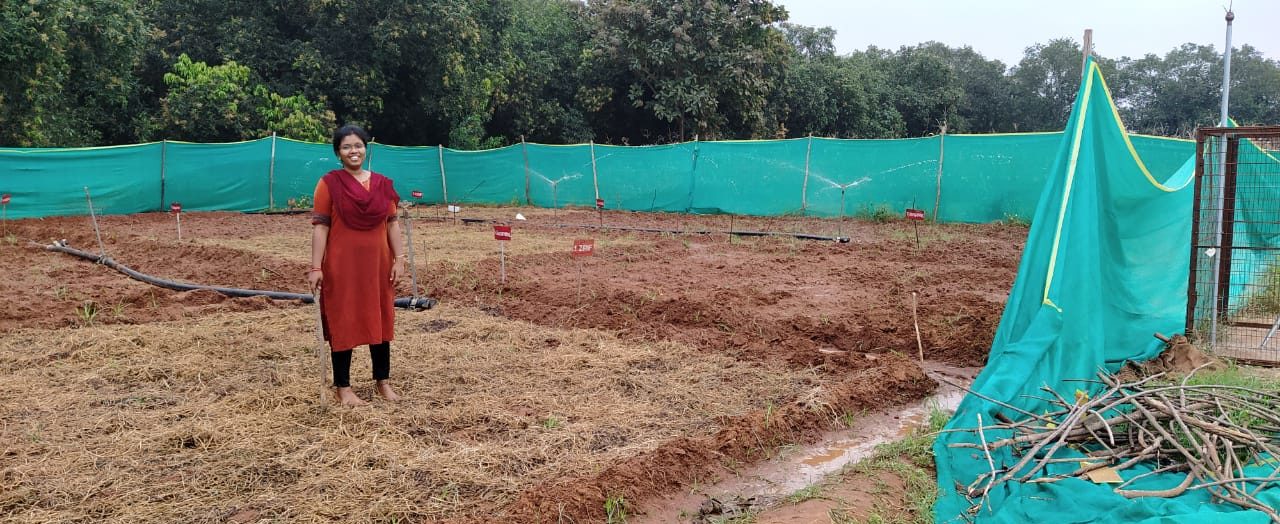
July 2020
Thank you once again to the Natural Farming Fellows (NFFs) for all of their hard work, particularly during the difficult circumstances they have been presented with as a result of COVID-19. You can find out more about them here.
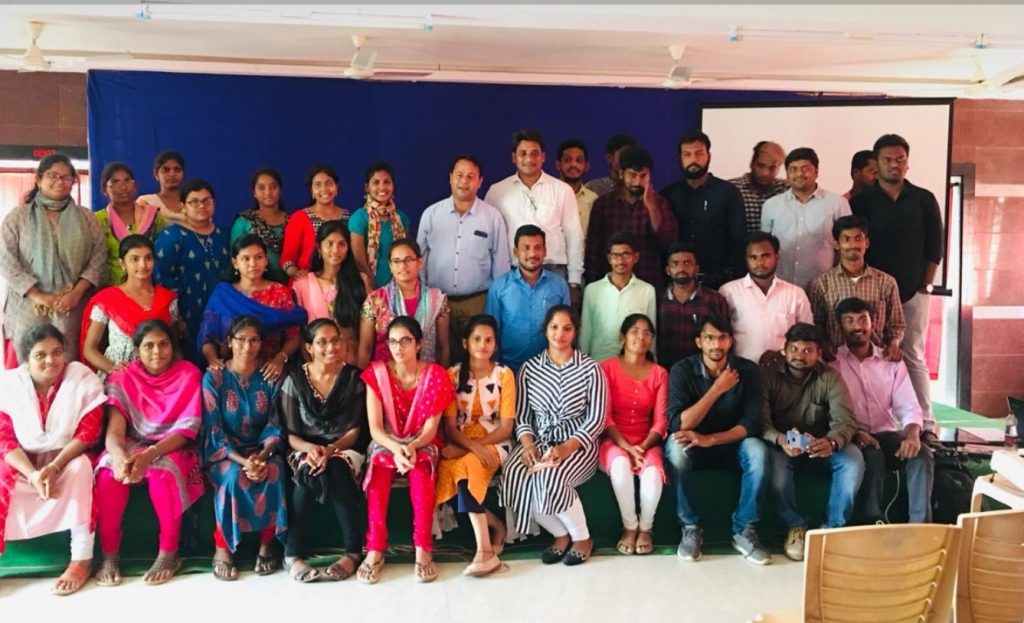
June 2020
As the second season of field experiments is coming to a close we would like the soil science team would like to thank the Natural Farming Fellows (NFFs) for all of their hard work. Over the coming weeks we would like to introduce you to some of them and hear about the work they have been doing.
Starting with Jhansi Rani Duggirala, an NFF in the Nellore district:
“I have done UOR experiment for 2 seasons in my cluster not only by personal interest but also want to do the research
From that I learnt,





Thank you Jhansi!
June 2020
Earlier this month, Dr Henny Osbahr participated in an international webinar on ‘Reviving Climate Resilient Agriculture: Solutions and Challenges’ to discuss the challenges and opportunities for ZBNF. The webinar was hosted by South Asia Fast Track and Sourajit Aiyer, with views from Indian government, research institutes and the private sector. Please see the flier below for further information about participants.
May 2020
This month we will hear from Haleema Sadia one of our Natural Farming Fellows:
“Myself Haleema Sadia, at present am an Agricultural Graduate (Agricultural BSc).
On Jan 29th I have joined ZBNF project as a Natural Farming Fellow, From May 1st , I have involved in UoR experiment, And chosen OKRA Crop in kharif and Tomato crop in Rabi season for my experiment in 10 cents of land.
Main reason for involved in this :Basically I belong to an Agricultural family, My parents used to grow paddy in large extent, gradually they stopped agriculture bcoz the net income was in crisis and converted the whole land into Aqua culture,and my whole village was converted to Aqua from green carpet. In my 4 years of graduation, I completely learned about conventional farming, no idea about Natural farming, In a short span of 3 months I got an opportunity to know the difference in ZBNF, Conventional and Organic in both soil parameters and physiology growth parameters through UOR experiment…”
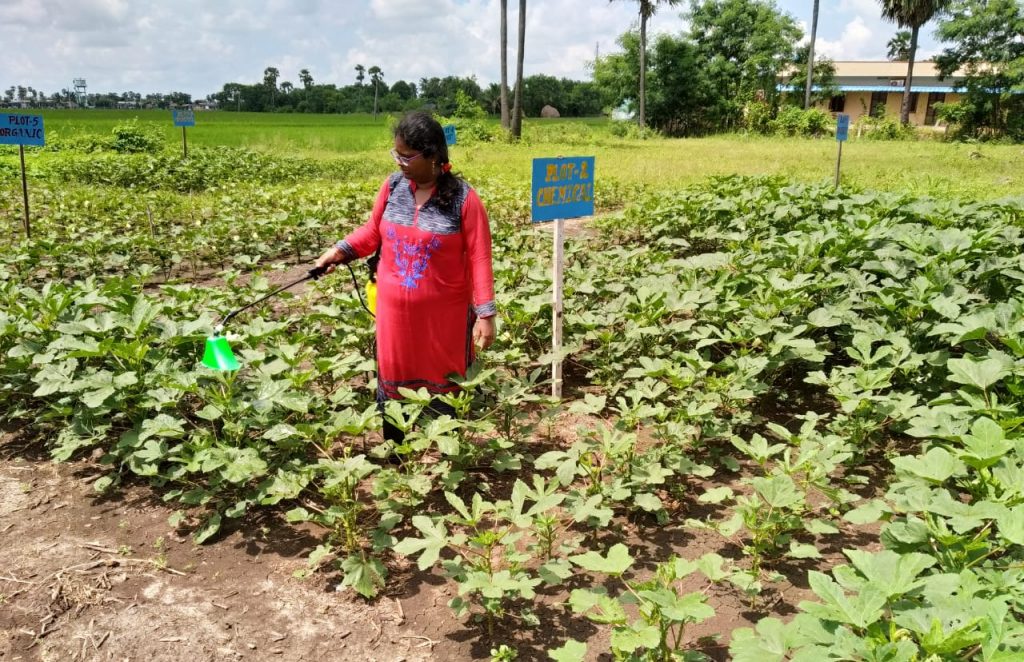
April 2020
We’re happy to report that so far our team are all safe and well. The COVID-19 pandemic has slowed our activities in the field so we thought we would take the time to introduce you to some of our team, and the work they were conducting before lockdown (and we hope to continue when safe to do so). You can read more about the management teams here and the Natural Farming Fellows here.
First, we will hear from Hari Priya, a Research Coordinator in the soil science team:
“I am V.Hari priya, with masters in Microbiology , working as a Research coordinator in science team – RySS. Each of the Research Coordinators will look after the Research work in one district. Many experiments are being conducted by the science team which helps in Revealing the Science behind ZBNF. RySS in collaboration with University of Reading is conducting few experiments in identifying the health benefits of plant and soil through ZBNF. We Research Coordinators involve in one set experiments and also monitor the Natural Farming Fellows who involved in another set of experiments. Life cycle analysis and Land degradation surveillance frame work are the few major projects of ICRAF in collaboration with RySS, in which I played a role in looking after the work in Anantapur District. Andhra Pradesh has got 5 Agro climatic zones in which Anantapur falls into Scarce Rainfall zone, I felt it challenging to work on one such regions where I can work hard to improve myself to achieve the organization objectives as well as to gain good knowledge and experience. I am glad to be a part of RySS.

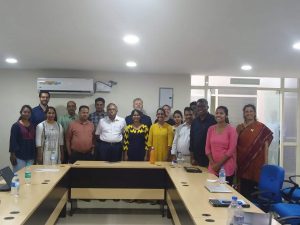
With University of Reading and APPI Team
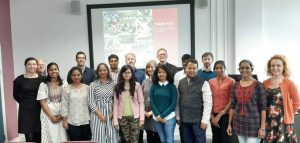
Visited to University of Reading
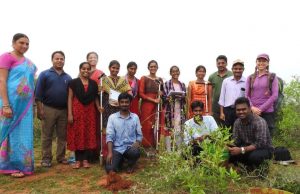
Land degradation surveillance frame work (LDSF) Training
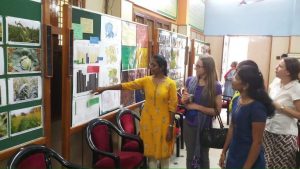
Explaining the LDSF – Anantapur site (Korrakodu) Results to ICRAF team.”
March 2020
Data analysis in Andhra Pradesh engages local partners in the analytical process
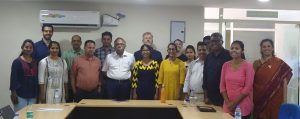
University of Reading ZBNF researchers visited Guntur, Andhra Pradesh, in February to meet with their RySS partners to begin analyzing the data that had been collected over the past ten months. The social science team focused on reviewing the Participatory Photography images and descriptions, all of which have now been translated into English.
The analytical framework being used is dialogical narrative analysis, and it recognizes that the stories the women tell through their photo responses are in dialogue with each other, the storytellers, and the listeners. Each participant in the analysis reviewed the images, both individually and as part of a larger overall story told by the self-help group, and took note of the salient narrative types that emerged—such as independence, legacy, or memory. This process was repeated for each of the six self-help groups involved in the study and took two days to complete. The extent to which differences or similarities are found in the analysis of different partners (and team members back in Reading who also reviewed the images) will inform triangulations of the narrative data.
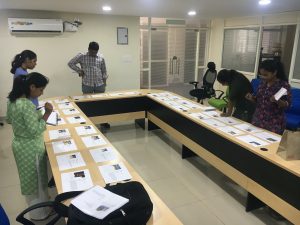
Project partners from RySS reviewing participatory photography images and descriptions as part of a dialogical narrative analysis
The soil science team conducted further training and planning meetings. Using the data, and lessons learned, from the previous season the team were able to provide further training in data and project management, data presentation, statistical analysis and interpretation. The team were also able to plan for future work in the experiments (watch this space!). The second season is also in full swing, so the team were able to visit some of the experiments being conducted by the Natural Farming Fellows in the Prakasam district and meet some of the local stakeholders in the region. We were also able to visit other practitioners of ZBNF, both on the small scale in ‘kitchen gardens’ and on the larger commercial scale.
February 2020
The soil science team have been collating the data so far from the first season of experiments. A great dataset thanks to all the help and support from the Natural Farming Fellows!
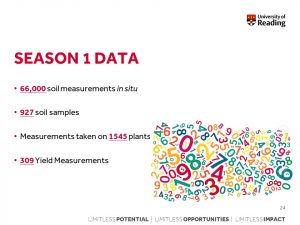
January 2020
The University of Reading were lucky enough to welcome 10 of the project partners from RySS to the UK for a week of training, progress meetings and a general catch up. Here two members of RySS (Hamika and Jayna) have written about there experience:
A 4,832 miles journey..!
Jan 4th was a different day. The day I felt ‘finally we started’, we get to see and explore a place that could open our minds and look further into the future. 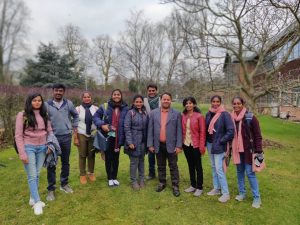 I wasn’t sure but yes we are going to University of Reading for the Social science and Soil science Research! Reaching a new country for the first time!
I wasn’t sure but yes we are going to University of Reading for the Social science and Soil science Research! Reaching a new country for the first time!
Long wait at the airport for three hours in the morning of 4th January at Rajiv Gandhi airport, Hyderabad, lack of sleep and waiting for the journey to start. Thanks to the time difference which saved our day. We reached Heathrow airport on the same 4th Jan at 11 am in the morning! Wow!
This was the first time that I am part of a research work unlike my colleagues but it was the first time for each of us to be involved with an International University (University of Reading). I was crossing my fingers for the next wonders to see in the coming 10 days .It was super chilling and we reached our Hotel which was the oldest hotel in the town which also had Charles Dickens used item in that hotel like his chair and books at the hotel. Lot of pictures and history related paintings in the hotel everywhere, which was pretty awesome, it also had an Indian touch with “Bhel puri” restaurant but we didn’t have anything Indian.
Our host, the University professor’s made sure we make the best out of every minute and hour. The first day at this huge university which looked classy and traditional architecture, I was amazed looking at the building. We were oriented about our plan for the next days in the campus. The very same day we got the chance to tour the campus and the departments and the canteen which had some interesting food we never usually have at our place and the library had millions of books! Including digitalized.
I have been working under the Social science team, where we are studying the ‘Impact of communication among the women in Zero Budget Natural Farming” – the organization I work for in India. We presented our work to the Dean of Environmental science and our Science team members. The Science team as well presented their work which was pretty interesting. We visited the experimental plot, the science labs, and equipment’s.
The opportunity to work with well experienced research professors was a motivation. Being part of the communication team at my work place (Zero Budget Natural Farming) in India and involving in the social science research here was a complete different exposure. I visited the International Development building which was amazing. Henny and Grady, the professors I work with invited us to visit their work place. Seeing the photographs of their project works framed on the walls inside the building gave such a good feeling. The photographs were clicked by the staff themselves. I wished that happened in my work place too.
We were oriented about the college studies, Phd and Mphil courses which was very helpful. They guided us on the protocols of applying for Phd and Mphil courses in the University. Lot of knowledge had they shared with us and deep conversations with them which gave me more insight on the other research works they are working on.
In the middle of all the works, we definitely took a break and visited London – Finally touring all the famous places from Buckingham palace to the Bakers Street remembering Sherlock Holmes. We took the city cruise ride and had so much fun!! Big thanks to the University of Reading for taking us around London and also being our tour guide!
I didn’t realize the days passed by until I reached the Heathrow airport again. All our bags were extra filled and more luggage to carry back to India. A much needed journey and exposure to a very different country, culture and people.
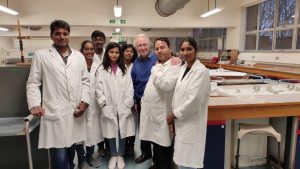 My heartfelt thanks to our Advisor, Zakir sir and Dharmendra sir for trusting me and involving me in this specific task. I am very grateful for Henny, Chris, Grady , Sarah for guiding us and conversing with you have enlightened me to know more and has showed me different world all together in my own work area. An amazing and fruitful time with some amazing people
My heartfelt thanks to our Advisor, Zakir sir and Dharmendra sir for trusting me and involving me in this specific task. I am very grateful for Henny, Chris, Grady , Sarah for guiding us and conversing with you have enlightened me to know more and has showed me different world all together in my own work area. An amazing and fruitful time with some amazing people
By
Working as Young Professional at Zero Budget Natural Farming
MY EXPERIENCE IN UK VISIT (K.Hamika)
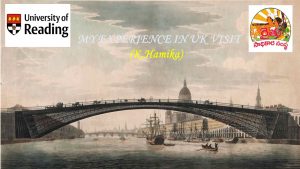
My experience in UK visit was lifetime memorable moment.
I would like to thank Advisor sir, Zakir sir and Chris for giving me this great opportunity to be apart, of this visit.
Also, my special thanks to Henny, Sarah, Grady and Dharmender sir for taking care of us throughout the visit.
Last but not least my cordially thanks to by dear friends and colleagues who bear me during the entire visit.
****
It started in the Heathrow airport which is the second busiest airport in the world by international passenger traffic, and it was a chilling experience. From there we went to a super cool Bhel puri house (gorge hotel) in reading where we stayed during our entire visit.
First day (06-01-2020) we went to university of reading, I was very much impressed with the college building itself and followed by that we visited soil science and microbiology labs which were really organized with highly sophisticated equipment’s like gas and liquid chromatography, flame photometer, spectrophotometer etc., though I have seen some of the equipment’s before but these were very well maintained especially the equipment for quantification of microbial respiration was really unbelievable, which I never think of such equipment at all.
Second day (07-01-2020) we have visited botanical garden in the college, it was a lovely place with swans swimming in the lake also, there I have seen so many new species of trees and some pine trees followed by that we went to see college library, the place where I can’t take of my eyes from it, which is a digital library also with lots of books.
Third day (08-01-2020) Sorby room in the college, we had a healthy discussion and presentations on our experiments among science team and UOR team followed by Chris and his team have taught us data analysis and graphical interpretations
Fourth day (09-01-2020) is fun day, outing to London there we have seen Victoria gallery, Buckingham palace, huge buildings of government officials etc., followed by that in the noon we all went for boat riding on river Thames there I was super excited after seeing the London eye, Big ben, tower bridge, London bridge etc., it was really an eye feast for me to see all those things, if I want to say my experience of that day, I just say that “Buckingham palace welcomed with sunlight whereas London eye received us with showers”
Fifth day (09-01-2020) Sorby room in the college, we have some discussions on PhD and M.phil projects followed by that we have attended some presentations on soil and microbial analysis procedures and later we visited university farms where experimental trails are going on also, I have observed the colour of the soil which is black with high organic carbon of 2-4% and some farm machinery, cattle sheds etc.,
Sixth day (09-01-2020) we went to Oxford, where we have seen Christ Church College, it was like a fantasy world for me by seeing that large dining hall which I have seen in Harry Potter series but, I never dreamt of it that I could see it in real. Also, we have also come across some shops exclusively with harry potter collection, which drag me and Hari into it and grab some harry potter stuff as a memory from that place.
Seventh day (10-01-2020) finally back to Heathrow airport from reading, with lots of memories in the heart and lots of chocolates in the bag. overall it was a best experience that I could cherish throughout my life.
***
December 2019
The majority of the soil science team have now harvested their field experiments and we’re really looking forward to seeing the data!
November 2019
University of Reading researchers return to Andhra Pradesh
Researchers from the School of Agriculture, Policy and Development’s International Development Division and soil scientists from the Department of Geography and Environmental Science were back in Andhra Pradesh, India, in August and again in November to continue their work on the Zero Budget Natural Farming (ZBNF) project. The purpose of these latest exchanges was to come together to share initial results and learning while preparing for the next milestones of the study.
Rather than visit research sites around the state, Dr. Grady Walker from the social science team and Dr. Sarah Duddigan from the soil science team spent time at the RySS headquarters in Guntur, meeting with the Natural Farming Fellows and Research Coordinators who had been trained earlier in the year.
The social science team meetings focused on the Participatory Photography method. Now that the Natural Farming Fellows who had been facilitating the activity had gained some valuable experience, they also had many questions that needed to be answered about the various dimensions of the method and participatory action-research in general. Furthermore, the descriptions of the photographs taken by participants were all written in the Telugu language; therefore, many hours were spent sitting together as a team and translating them into English.
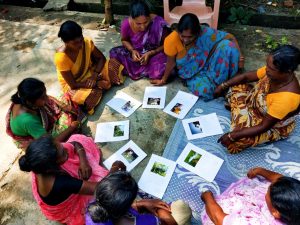
Members of a women’s self-help group (SHG) discuss their photographs at a meeting in Vishakapatnam District
The soil science team focused on collating on the data that has been collected in the field to date. Thirty Natural Farming Fellows and five Research Coordinators are taking regular readings from their experimental farm plots including: soil pH; temperature; moisture; infiltration rate; texture; bulk density; earthworm counts; and crop biometrics. The team have been doing a fantastic job! As well as checking progress, and planning for the following season, the team also conducted some training on how we might present the data, such as drawing graphs and creating presentation slides.
Various members of the soil science team taking measurements in the field.
October 2019
Dr Henny Osbahr presented ‘Zero Budget Natural Farming in Andhra Pradesh: Developing the evidence base’ in the Drivers of Smallholder Responses and System Outcomes session of the Sustainability & Development Conference, Michigan, USA.
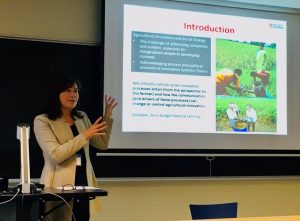
September 2019
We have now managed to put 5 met stations in place across AP in Anantapur, Krishna, Nellore, Prakasam and Visakhapatnam. These are in place on our Research Coordinators land, who received full training in how to maintain them and download the data. These stations will enable the soil science team to understand trends seen in the field measurements the Natural Farming Fellows and Research Coordinators are taking in the field. We will also be able to describe the differences in the argo-climatic zones we have selected with on the ground data.
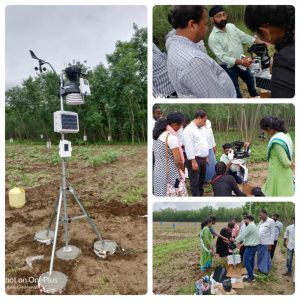
June 2019
The Natural Farming Fellows in the soil science team are starting to set up their experiments, and doing a fantastic job! Here’s to an exciting season, watch this space for more news and updates.
May 2019
University of Reading ZBNF team travels to India for training visit
In April team members from the University of Reading’s ZBNF social science study accompanied their soil science counterparts on a training visit to Andhra Pradesh to kick-start collaborative work on the GCRF-Funded project, “Understanding the biophysical processes and extension mechanisms of Zero Budget Natural Farming (ZBNF) to support its wider application”.
The research project has an interdisciplinary design that involves both soil science experiments and social science inquiry using participatory photography. Natural Farming Fellows and Research Coordinators from Rythu Sadhikara Samstha (RySS), the partnering institution in Andhra Pradesh, will be carrying out the research activities designed by the University of Reading team. The purpose of the participatory photography activity is to understand why ZBNF farmers have adopted the practice, what innovations they are making, and how they integrate the practice into their socio-cultural landscape.
The team spent a good deal of time on the highways of Andhra Pradesh because of the large distances between districts where studies are being initiated. Over the course of the visit, the social science team was able to meet with self-help groups and farmers in Guntur District, Anantapur District, and Vishakapatnam District in the north of the state. Each district falls within a distinct agro-ecological zone, and spreading the research activities across these zones will allow for some interesting comparisons to be made.
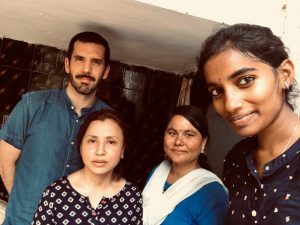
Rinchen and Grady from the UoR social science team meet with RySS partners in Vishakapatnam District
Meanwhile the soil science team were able to meet with Natural Farming Fellows and Research Coordinators from five districts within distinct agro-ecological zones: Anantapur, Krishna, Nellore, Prakasam and Visakhapatnam. The team were able to conduct in-filed training on how to lay out the experimental plots and take routine measurements in the field. Initally this training was cnoducted by UoR staff, to be taken over later by local Research Coordinators.


